It’s fair to say that I wasn’t blessed with particularly good timing on my Chinese New Year trip to Beijing in late January, when the first signs of a rapidly spreading coronavirus outbreak were beginning to take hold across the nation.
Arriving in town by way of Korean Air First Class, I briefly stopped by a local restaurant for a meal with my extended family in an eerily empty restaurant, before spending the next 48 hours self-isolating at home before self-isolation was cool.
Eventually, my parents (justifiably) grew worried that flights and passenger movement in and out of China would be restricted over the next few days, so they encouraged me to cut short my stay this time and embark on the return journey earlier.
After giving it some thought, I agreed it would be the right course of action, so I moved up my Qatar Airways flight from Tokyo to Doha by four days, while booking a flight for the previous day from Beijing to Tokyo.
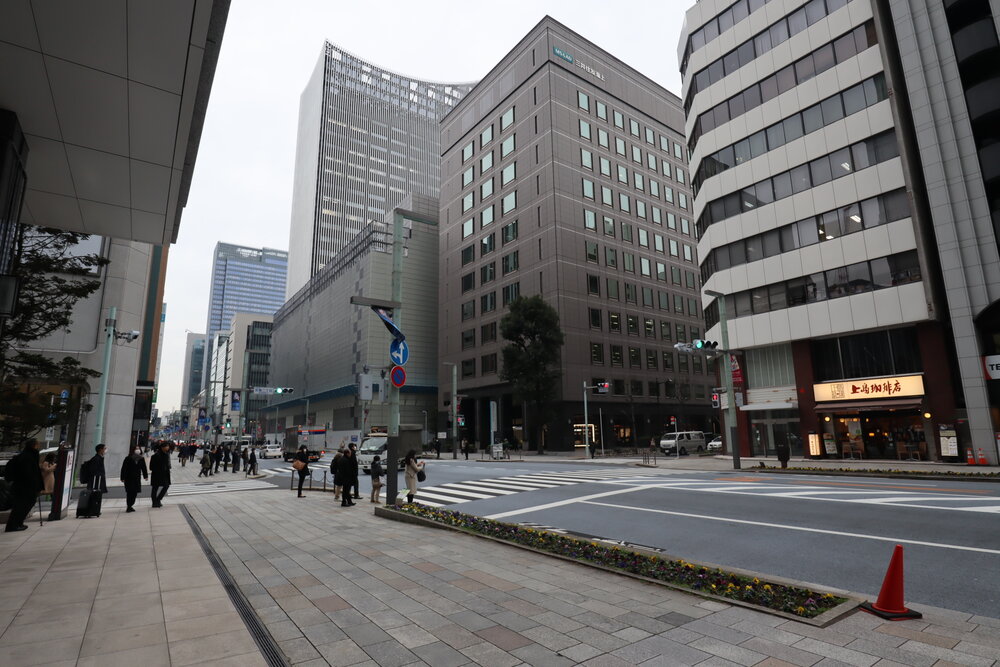
Courtyard Tokyo Station – Street
Upon dropping me off at the airport in Beijing, my parents would urge me to shorten the entire trip and return to Canada as soon as possible, warning me that most of my travel plans in 2020 would be severely curtailed as well. It’s poignant to reflect on their words knowing what we know now, even if I didn’t quite believe them at the time.
In This Post
Courtyard Tokyo Station – Location & Booking
Anyway, my last-minute change in plans required a one-night hotel stay in Tokyo, and in the midst of everything that was going on, I actually didn’t get around to booking a hotel until I had already landed on the tarmac at Tokyo Haneda Airport at around 9pm that very evening.
As usual, I ran a quick search for hotels via the Marriott Bonvoy app, expecting to have at least a few options to choose from. Marriott’s footprint in Tokyo is less impressive than you might expect of a leading world city, but there are still a handful of strong properties to choose from, including The Ritz-Carlton, Tokyo, the Marriott Tokyo, the Prince Gallery Tokyo Kioicho, and the Prince Sakura Tower (which I had previously stayed at in August 2018).
However, at this last-minute stage, almost all of these hotels were either sold out entirely, or could only offer a sky-high cash rate with no possibility to redeem Bonvoy points. This was somewhat surprising to me, and I briefly wondered if I’d have to post up at a cheap capsule hotel again, similar to when I last passed through Tokyo on an overnight stay earlier that month.
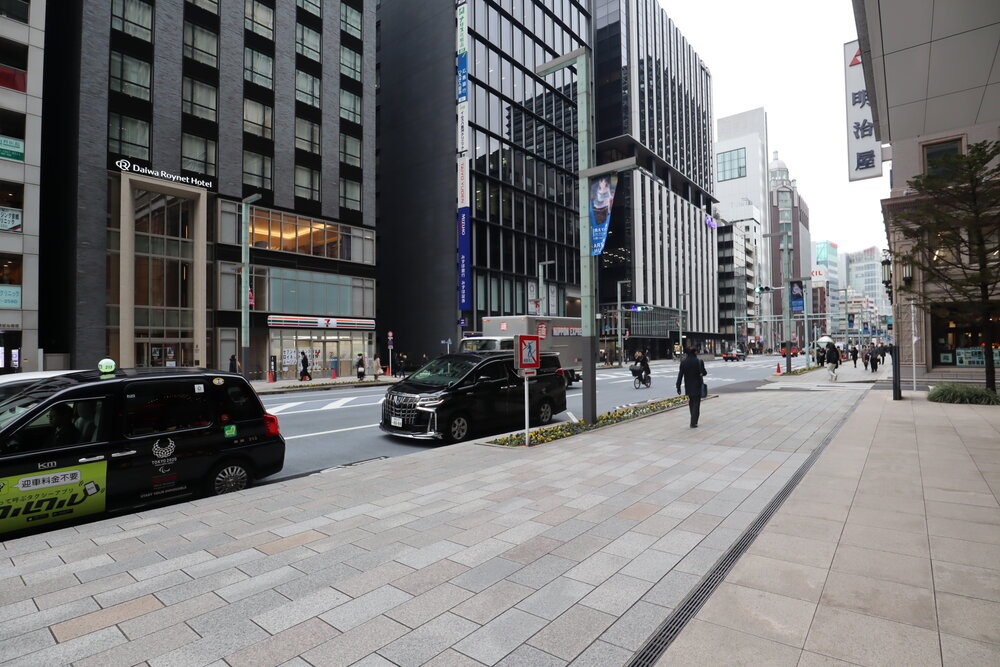
Courtyard Tokyo Station – Street
I noticed, however, that the Courtyard Tokyo Station was still bookable for 35,000 points as a Category 5 property at the standard rate. While 35,000 points is more than I’d usually like to spend on a quick one-night stay, it did compare favourably to the last-minute cash rate according to my 1cpp valuation of Bonvoy points, and I thought it might make for a useful review for any Tokyo-bound travellers as well.
If you’re booking a Marriott hotel, consider making your booking through the Prince of Travel affiliate link, which helps to support the website.
(Unfortunately, the hotel was bumped up to Category 6 as part of the March 2020 category changes, which really erodes the value of redeeming Bonvoy points here.)
I swiftly secured a base-level Cozy Double guest room, which turned out to be the last one available in the system, before disembarking from the plane and taking the Keikyu Airport train into town.
Tokyo Station is an important railway junction in Tokyo’s Marunouchi business district, and the Courtyard is located about a five-minute walk away from the station’s Yaesu Central Entrance. Like many train stations in the Japanese capital, Tokyo Station is an absolutely massive sprawling complex, so it’s very important that you locate the correct exit if you’re heading to the Courtyard.
(Despite the hotel being named after the nearby railway hub, the closest metro station is actually Kyobashi station on the Ginza Line, which is just down the street and very convenient for getting around the city.)
Courtyard Tokyo Station – Arrival & Check-in
I arrived at the hotel late at night, so returned to take some photos of the exterior in the daytime. The Courtyard occupies the first few floors of the Kyobashi Trust Tower, providing a convenient lodging option to tourists and business travellers alike.
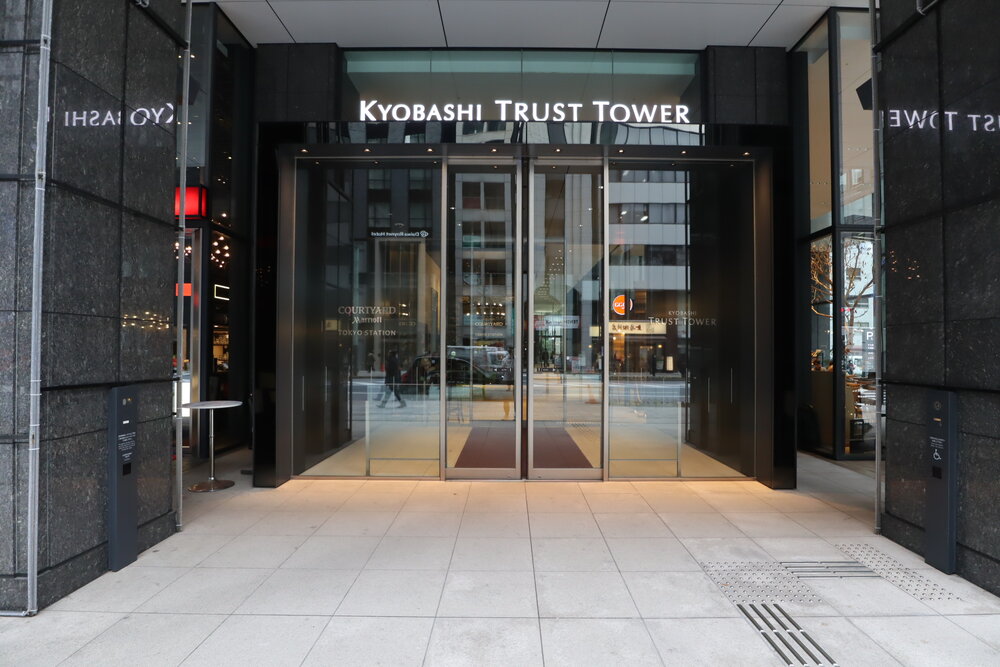
Courtyard Tokyo Station – Building entrance
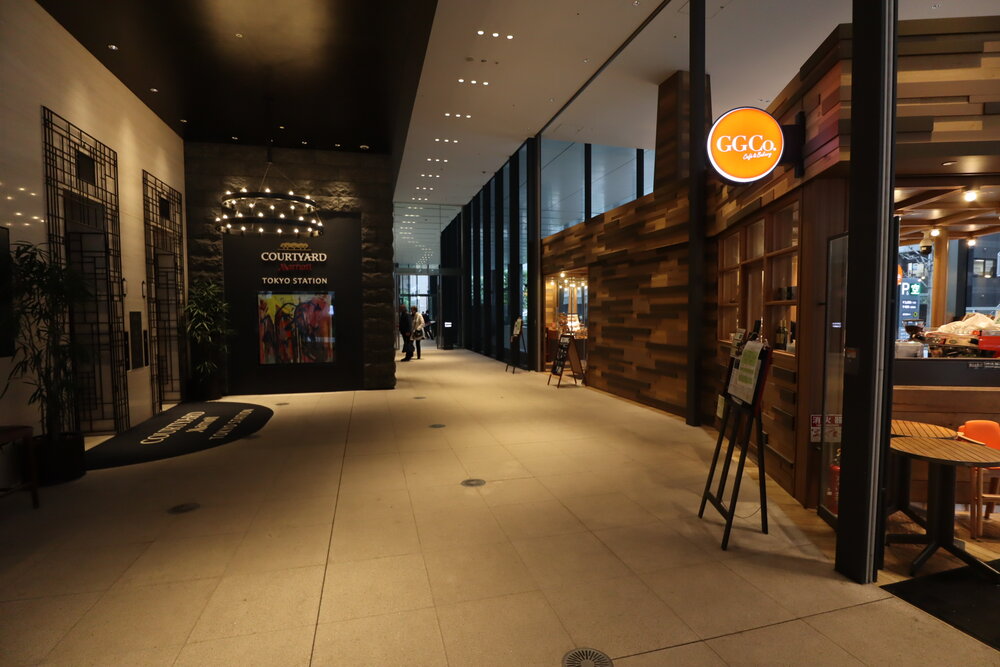
Courtyard Tokyo Station – Building lobby
It’s also worth mentioning that, upon stepping foot in the lobby, I reached into my coat pocket for my passport… and panicked. In a moment of horror, I realized that I had left my passport in the seat back pocket on the plane!
I must’ve been so distracted by booking a hotel that I had forgotten to grab my stuff. My fiancée Jessy’s always warning me about casually putting my passport in the seat back pocket when I’m flying, and this time, it was looking like I could be paying a hefty price.
With no passport on me, I wasn’t sure if the Courtyard was even going to accept my reservation for the evening. The lobby is located on the 4th floor of the building, so I held my breath as I took the elevators up…
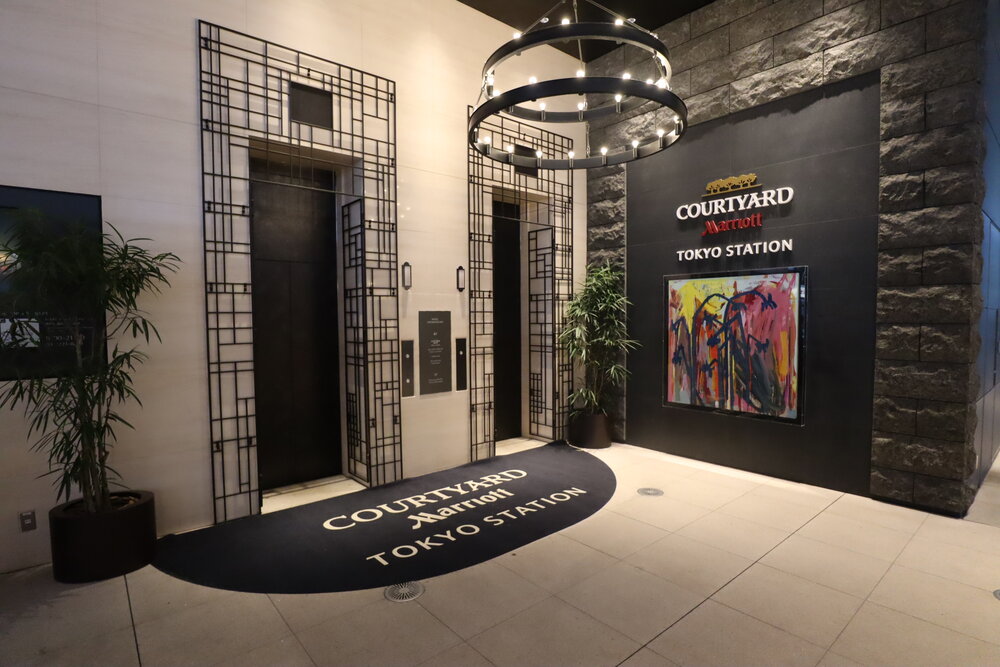
Courtyard Tokyo Station – Elevators
Upon arriving at the front desk, I apologetically mentioned that I made a reservation just a few hours earlier, but had just left my passport on the plane.
Seeing my obviously panicked state, the front desk associate graciously mentioned that I would have no problem staying for the night, and even assisted me with finding out how to reach the ANA lost-and-found office at Haneda Airport (they were closed for the evening, and since I wasn’t flying out until the following night, I could reach out over the phone in the morning to hopefully locate my passport).
To soothe my spirits further, she mentioned that I had been proactively upgraded to a Creators Queen Room, and that I’d enjoy complimentary breakfast and late checkout the following day as a Titanium Elite member. Furthermore, I could make use of the self-serve honour bar in the Courtyard’s “lounge” on the opposite side of this floor, which is open to all Marriott Bonvoy Silver Elite members and higher.
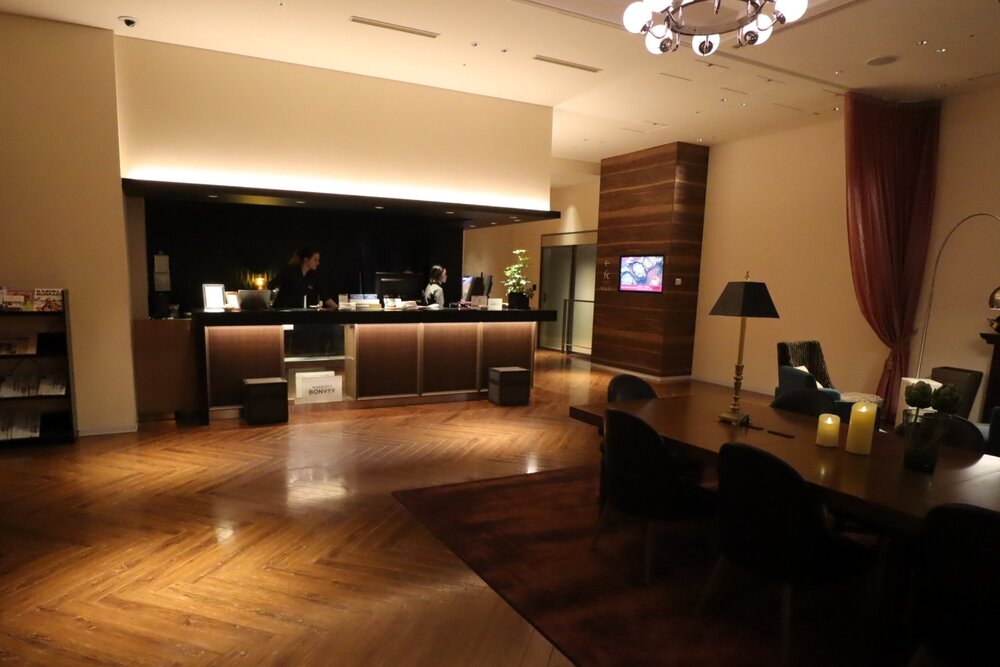
Courtyard Tokyo Station – Lobby
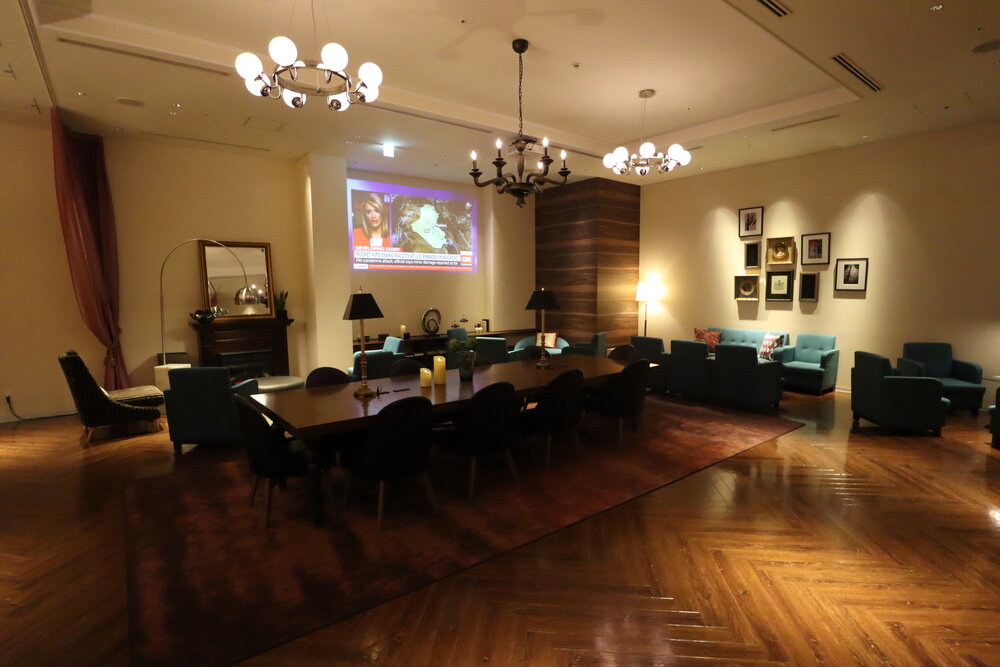
Courtyard Tokyo Station – Lobby
Courtyard Tokyo Station – Creators Queen Room
Thanking the associate for her help during this stressful time, I took my room key and headed down to the third floor, where I had been assigned Room 305. I was ready to sleep for the night and to wake up as early as possible the following morning to address this little conundrum that had arisen.
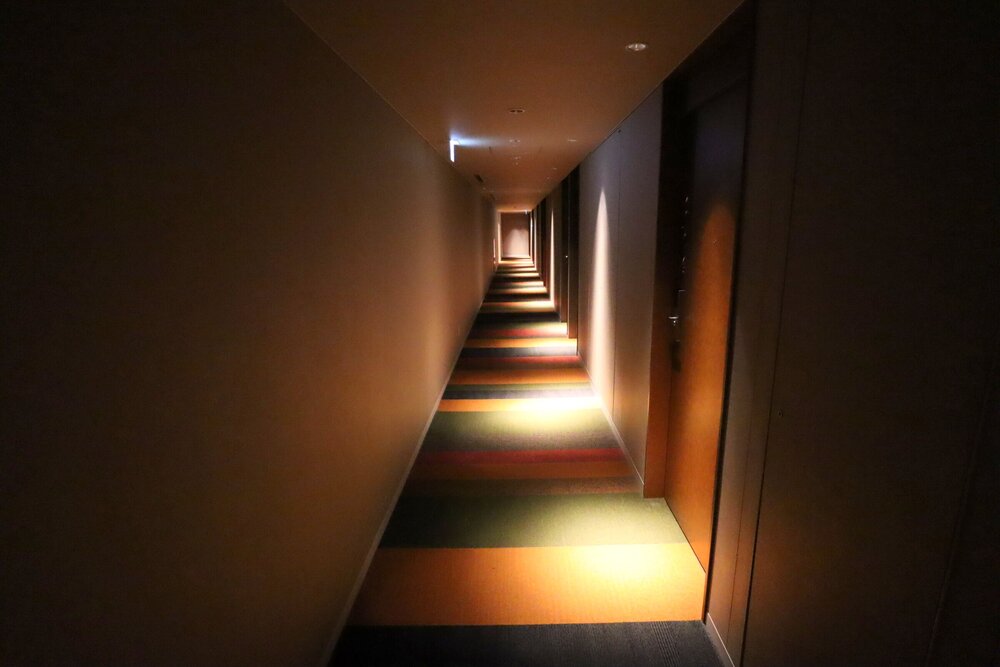
Courtyard Tokyo Station – Hallway
Room 305 was found around the corner from a long and colourful hallway. Upon stepping inside, I was pretty surprised at just how… small the room was.
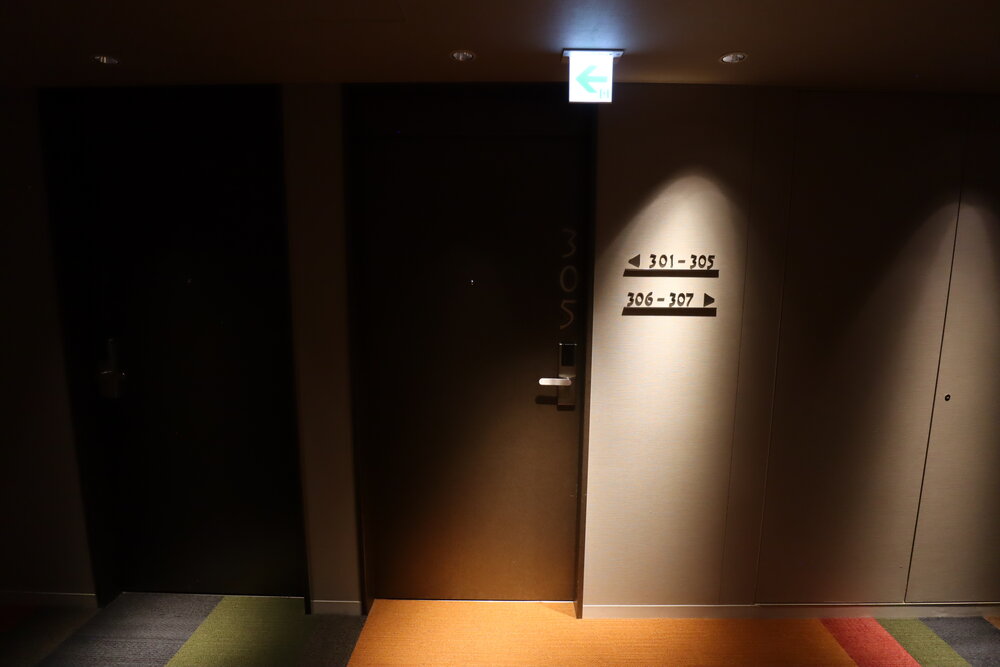
Courtyard Tokyo Station – Room 305
This is Tokyo, of course, the city of capsule hotels and micro-apartments, where space is at a premium and smaller rooms are the norm rather than the exception. So while I wasn’t at all dissatisfied with my 19-square-metre room, I still needed some time to get used to the limited space available, especially after opening my suitcase and spreading out my items.
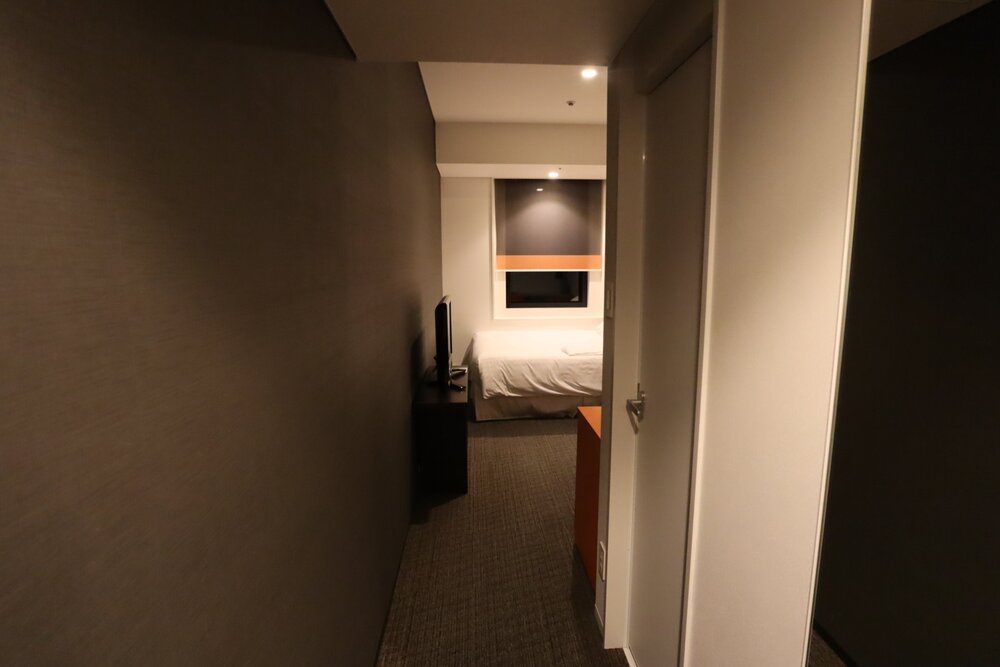
Courtyard Tokyo Station – Creators Queen Room
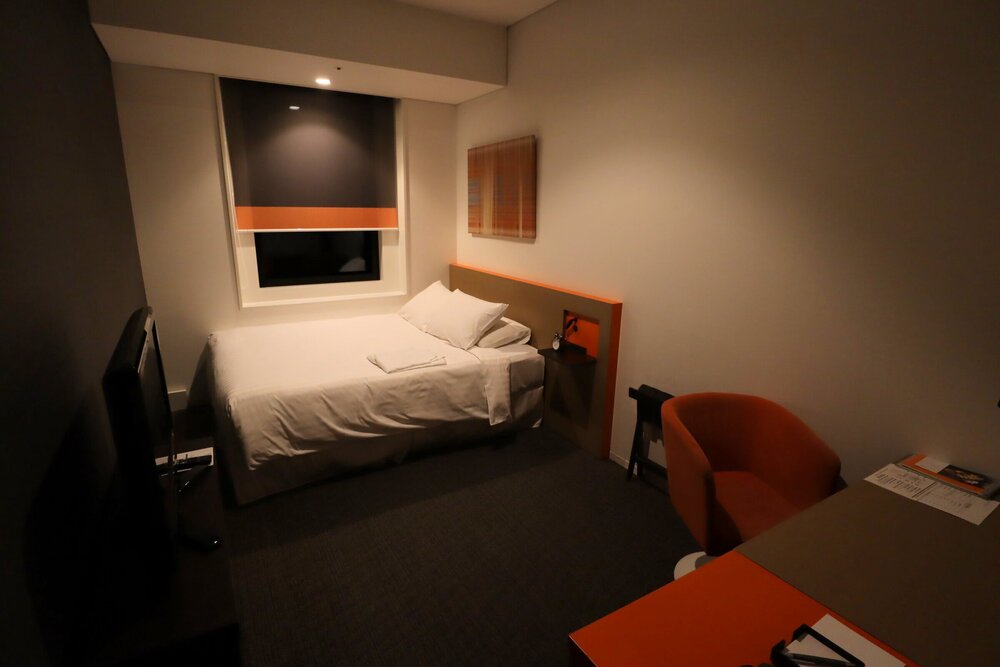
Courtyard Tokyo Station – Creators Queen Room
The Creators Queen room type is basically one rectangular space, which consists of a queen bed by the window, a small television on its stand, a foldable rack for your suitcase, and an ergonomic desk-and-mini-fridge combo.
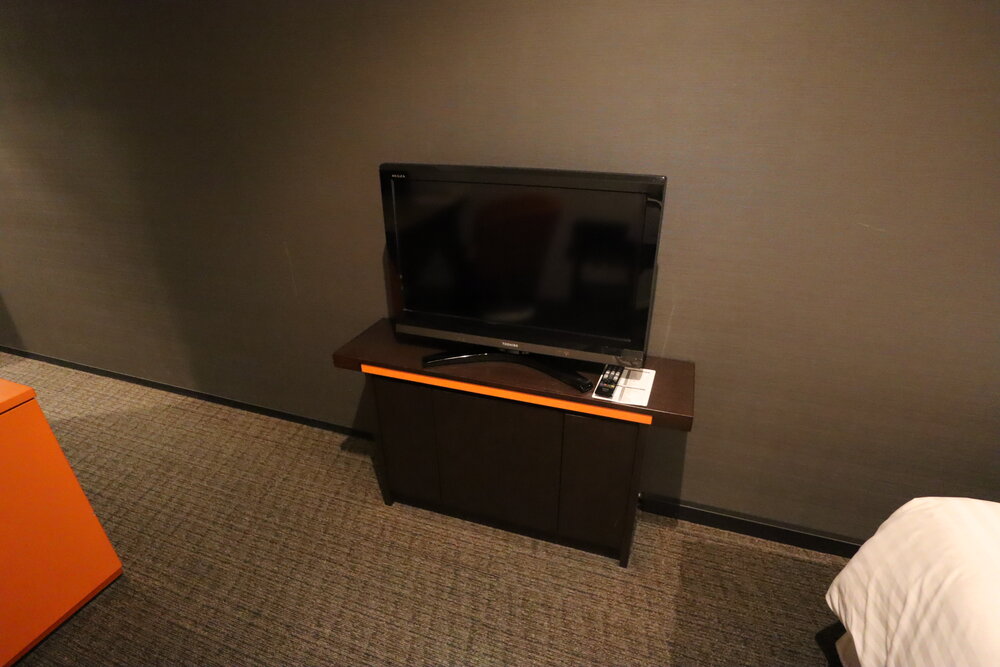
Courtyard Tokyo Station – Television
The queen bed was comfortable enough for my needs, and I slept very soundly for the night. It probably also helped that I was still in a jet-lagged state, having only arrived in Asia a few days ago.
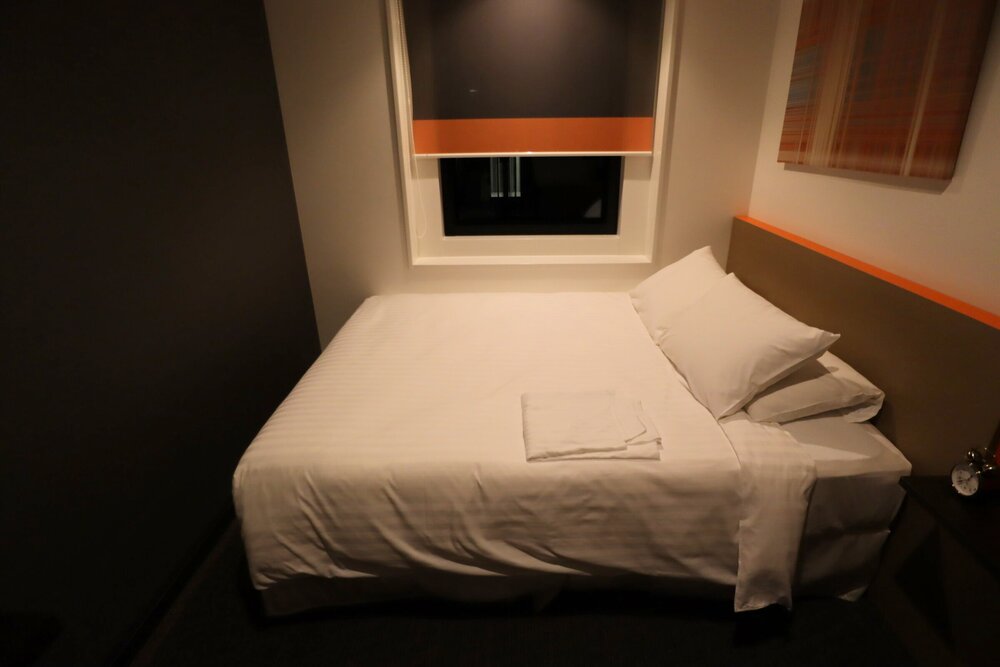
Courtyard Tokyo Station – Queen bed
The desk made for a decent workplace considering the space limitations. Its most useful feature for my stay was probably the landline phone, which I used to call ANA’s lost and found office the following day.
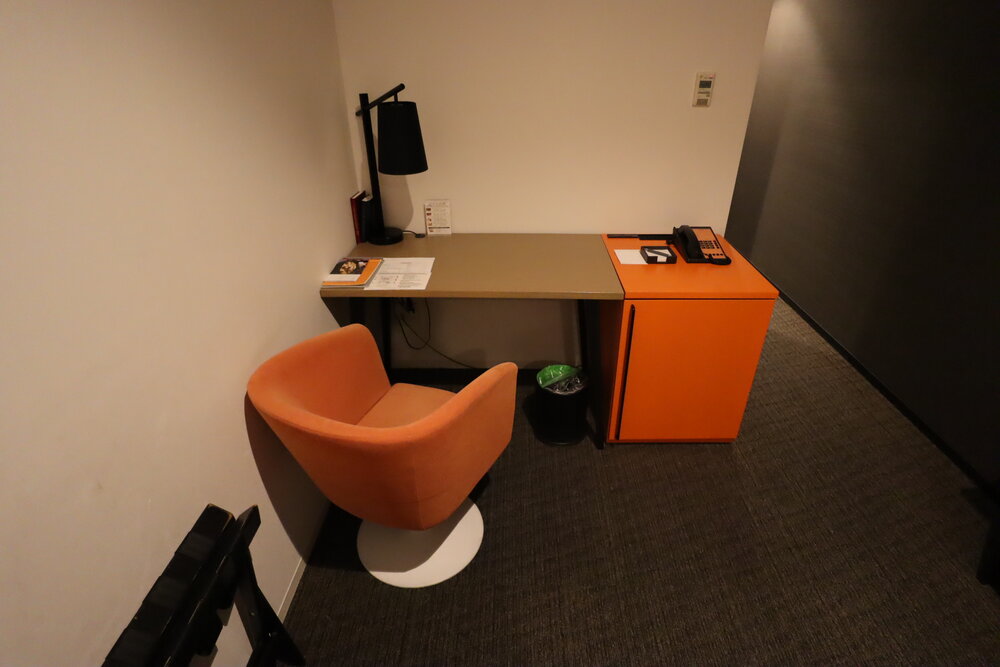
Courtyard Tokyo Station – Desk
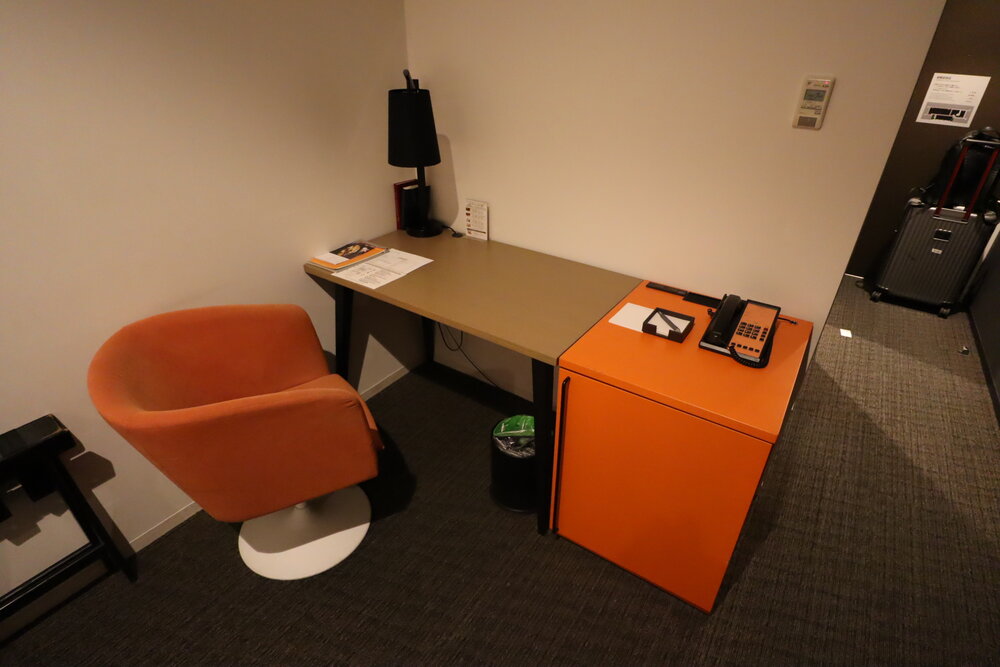
Courtyard Tokyo Station – Desk
The minibar came with two complimentary bottles of water, but nothing else in terms of snacks or drinks.
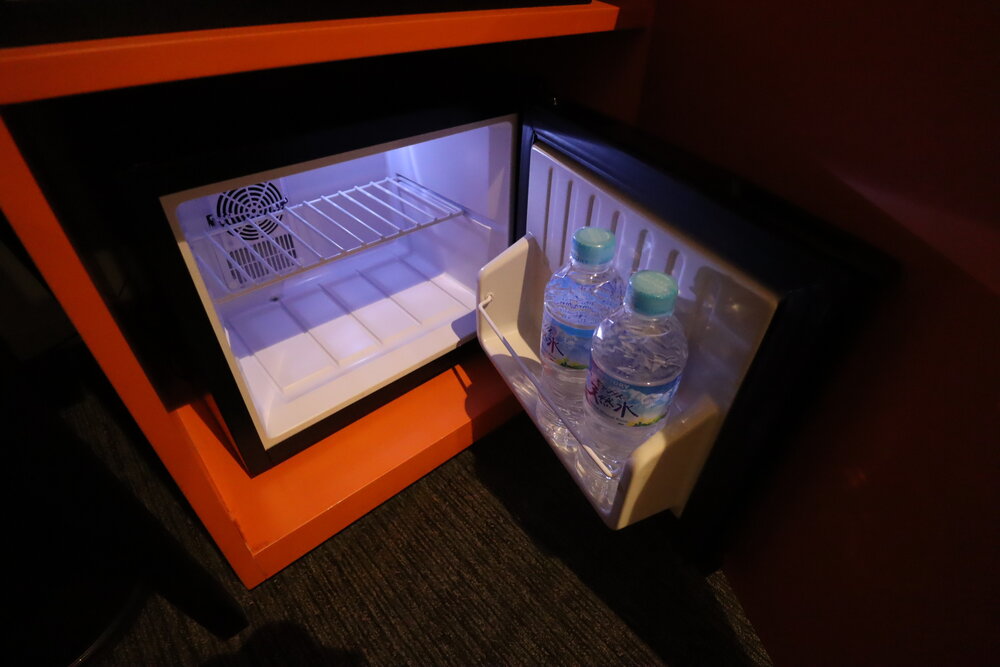
Courtyard Tokyo Station – Mini-fridge
Similarly space-constrained as the living and sleeping area was the bathroom. A Japanese-style toilet with bidet, a small sink, and a shower-and-tub combo occupied all of the space, shunting the towel racks and toiletry holders into the very corner.
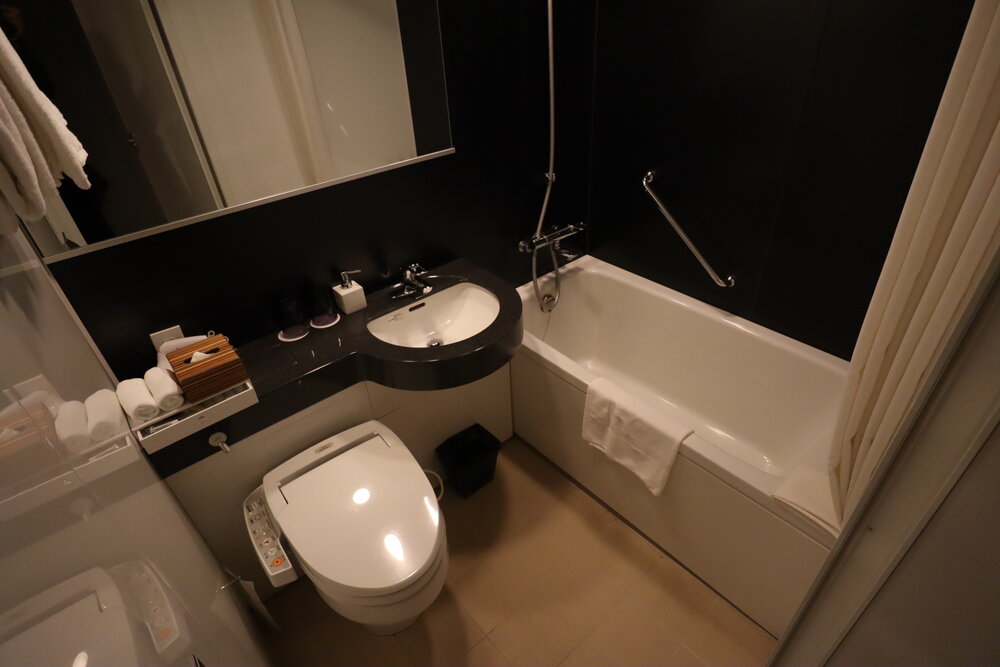
Courtyard Tokyo Station – Bathroom
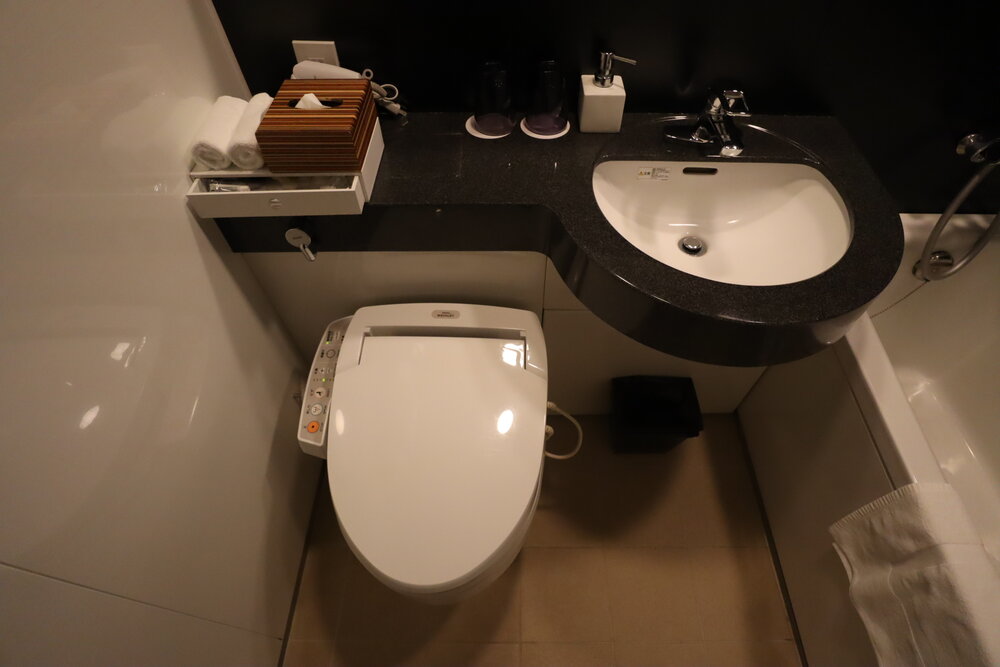
Courtyard Tokyo Station – Bathroom
While it might appear at first glance that a standalone shower would’ve been more suitable in such a small bathroom, it’s my understanding that Japanese people generally prefer having a bathtub instead.
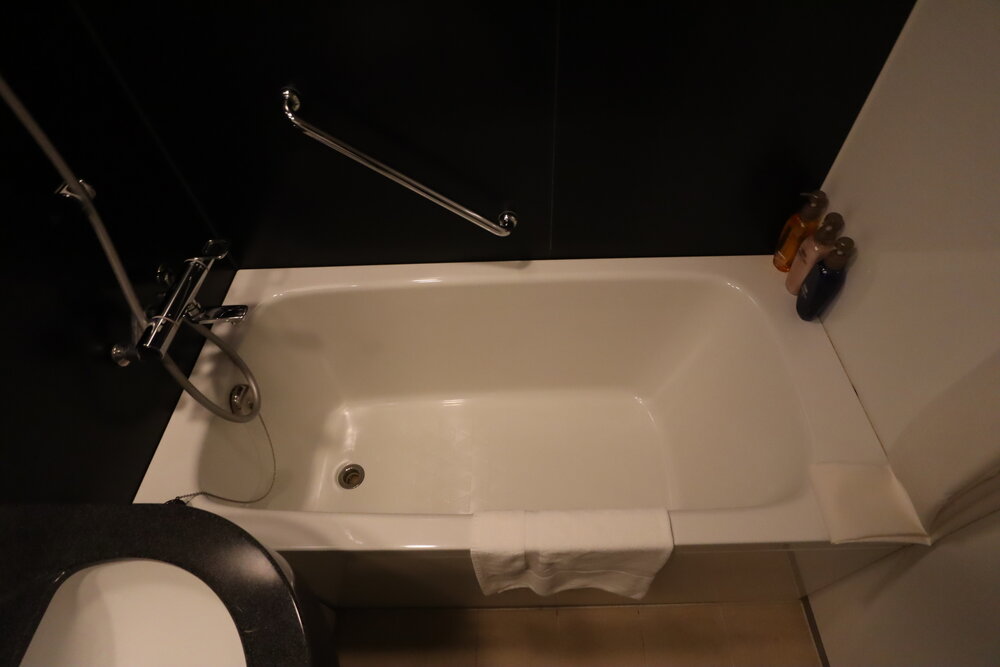
Courtyard Tokyo Station – Shower & bathtub
The room’s views weren’t too much to speak of, overlooking a stretch of the Kyobashi street outside. Take a look at the street scene – it’s simply remarkable how clean and orderly everything in Japan seems to be at all times, isn’t it?
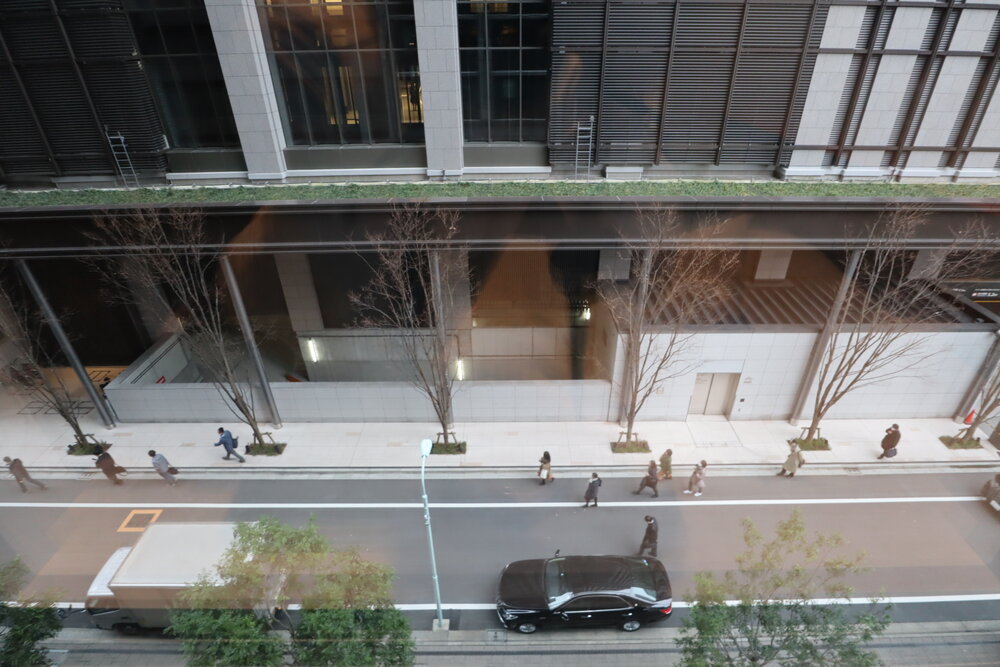
Courtyard Tokyo Station – Views of Kyobashi street
That’s about all there is to say about the room; even though it was definitely one of the smallest hotel rooms I’ve gotten recently, I was at least grateful to be upgraded from the base-level 16-square-metre Cozy Double room, because an extra three square metres makes all the difference in a tiny space like this.
It’s my understanding that even the Courtyard Tokyo Station’s largest room, the Photographer Twin, only clocks in at 33 square metres, so this is probably a hotel that’s more suited to solo travellers, business travellers, and couples than to any families of three or greater.
Anyway, I’m pleased to say that the passport situation ended up working itself out the next morning. I called ANA at 9am sharp, right when they opened, and they confirmed that they had retrieved my passport from the plane during the routine post-flight sweep. Since I’d be flying out of Haneda again that evening, I simply arranged to pick up my passport at 7pm, and needless to say, I was beyond relieved upon putting down the phone!
Courtyard Tokyo Station – Breakfast
After sorting everything out, I headed down to breakfast at the Lava Rock cafe in the lobby of the Kyobashi Trust Tower, which seems like a largely a separate establishment from the Courtyard itself, even though it provides hotel guests with breakfast service.
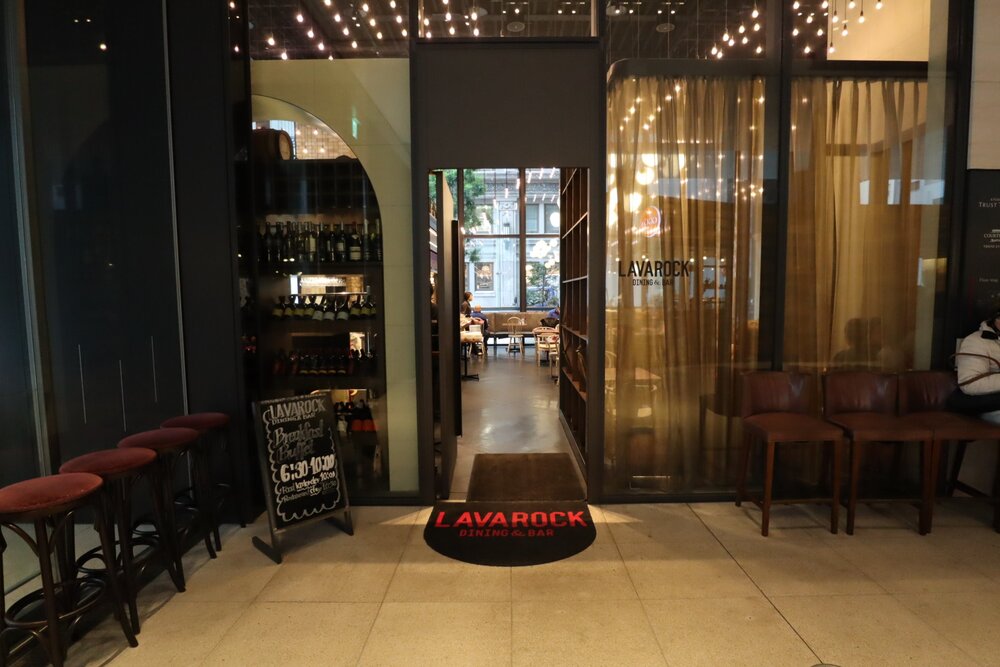
Courtyard Tokyo Station – Lava Rock Café
Courtyards in Asia generally offer a slightly more upscale product than the dingy airport hotels we’re used to in North America, so I had high hopes for the breakfast spread here, which were matched in an impressive fashion.
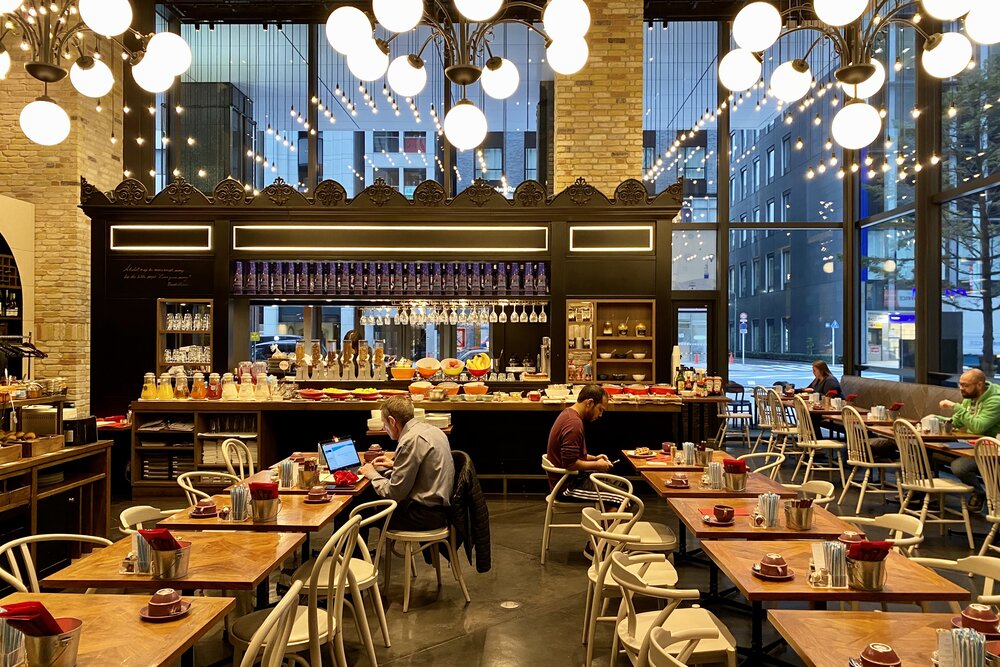
Courtyard Tokyo Station – Lava Rock Café
Despite being housed in a relatively small cafe, there was still a great number of items on show in the buffet spread, arranged in a neat, elegant, and almost cute fashion that could only be expected in Japan.
A range of hot savoury items, along with cold cuts, pastries, and cereal, would cater to Western travellers’ tastes. Meanwhile, Asian options included Vietnamese pho, Chinese congee, and a Japanese set breakfast that consisted of steamed rice, a fish filet, salmon roe, and miso soup.
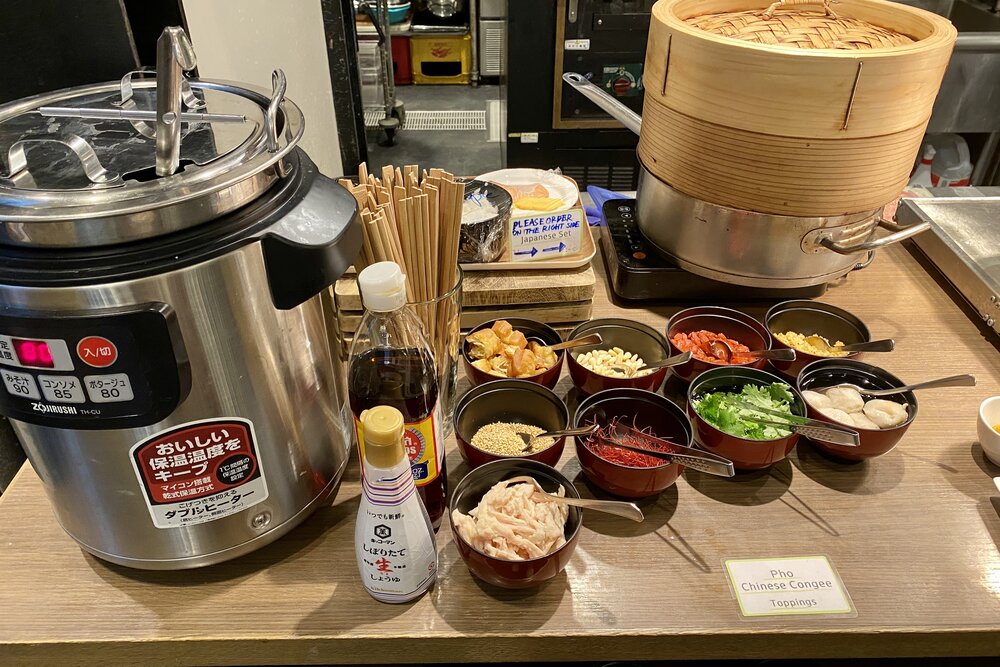
Courtyard Tokyo Station – Asian breakfast selection
I ordered a helping of that Japanese set plate, which was quite delicious, along with a bowl of the pho that was decidedly less authentic, but tasty nonetheless. I then polished off my breakfast with a cappuccino and a handful of the Western items.
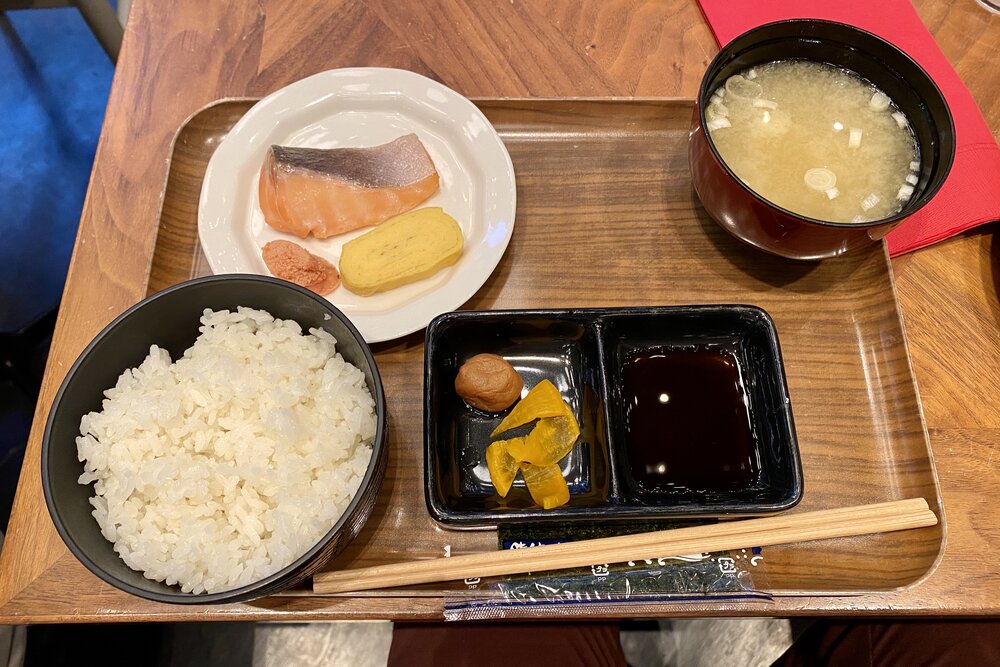
Courtyard Tokyo Station – Japanese set plate
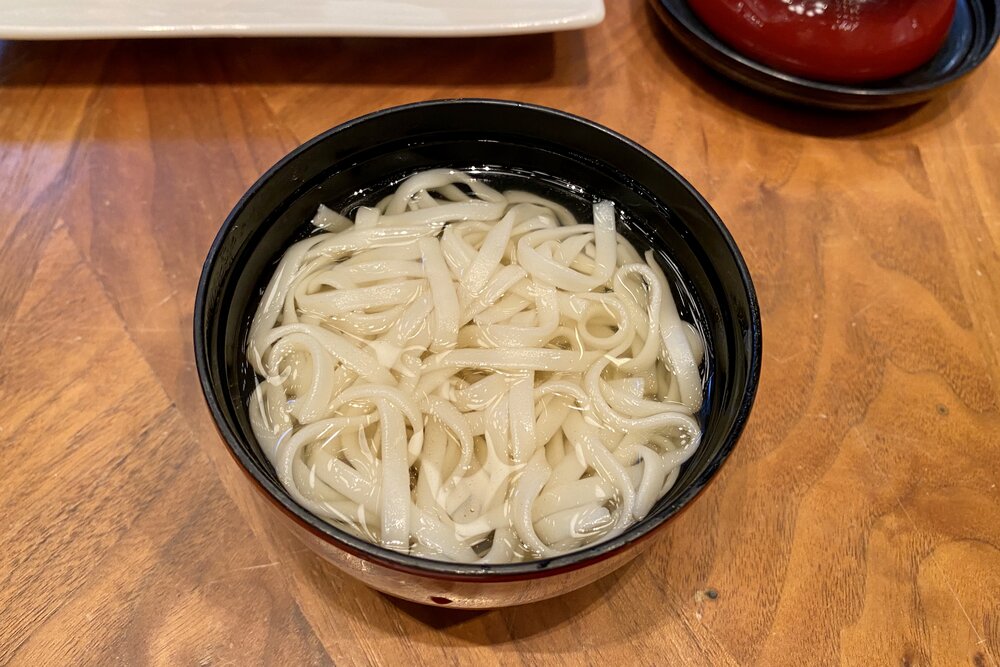
Courtyard Tokyo Station – Pho
Courtyard Tokyo Station – Other Facilities
After breakfast, I headed out into Tokyo for the day, hitting the WeWork office right next door before taking the metro to meet up with an old friend who lived in Tokyo for an udon lunch.
For posterity’s sake, this installment in my lifelong quest to sample as many of Tokyo’s noodle joints as possible took place at Udon Maruka in the Ochanomizu neighbourhood, and as always, I fully indulged in not one but two bowls of slippery and salty goodness.
I decided to walk back to the hotel in the afternoon, meandering along the eastern edge of the city’s Imperial Palace on the 40-minute walk. This part of Tokyo perhaps isn’t the most interesting as a tourist, but since this was my sixth visit to the city, I had no qualms skipping the tourist attractions and getting a sense of local life in the bustling business districts as well.
Upon returning to the Courtyard and checking out of my room, I took some time to get some more work done in the lobby and scope out the remainder of the hotel’s features.
First up was the Courtyard’s “lounge” for Marriott Bonvoy elite members, which even the lowest Silver tier of members have access to. Accordingly, the lounge is a relatively basic nook with some snacks and drinks that you can grab-and-go, although it does have a selection of beer available.
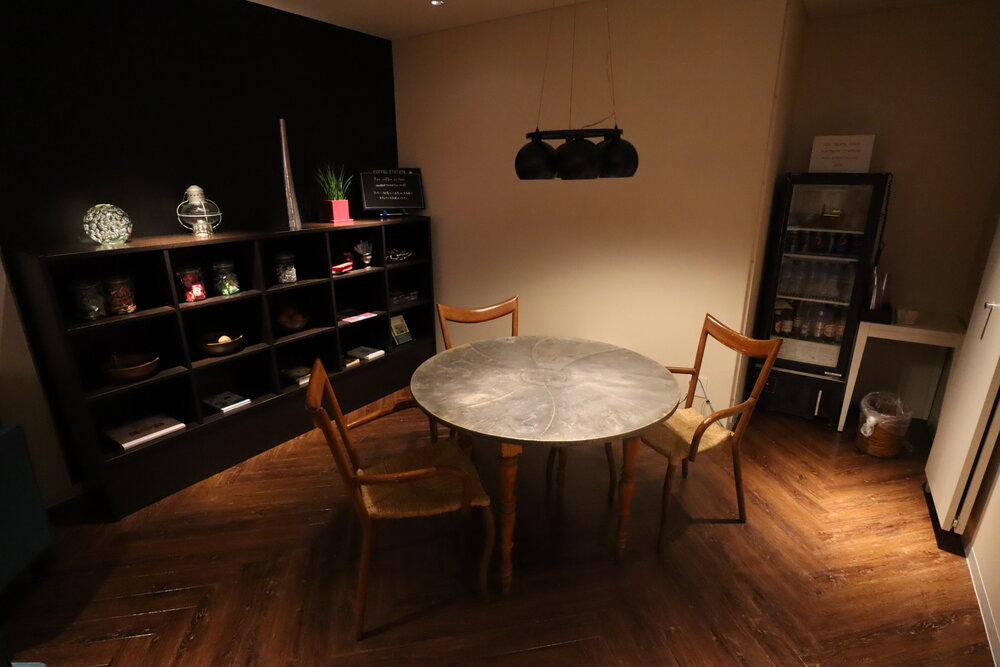
Courtyard Tokyo Station – Mini-lounge
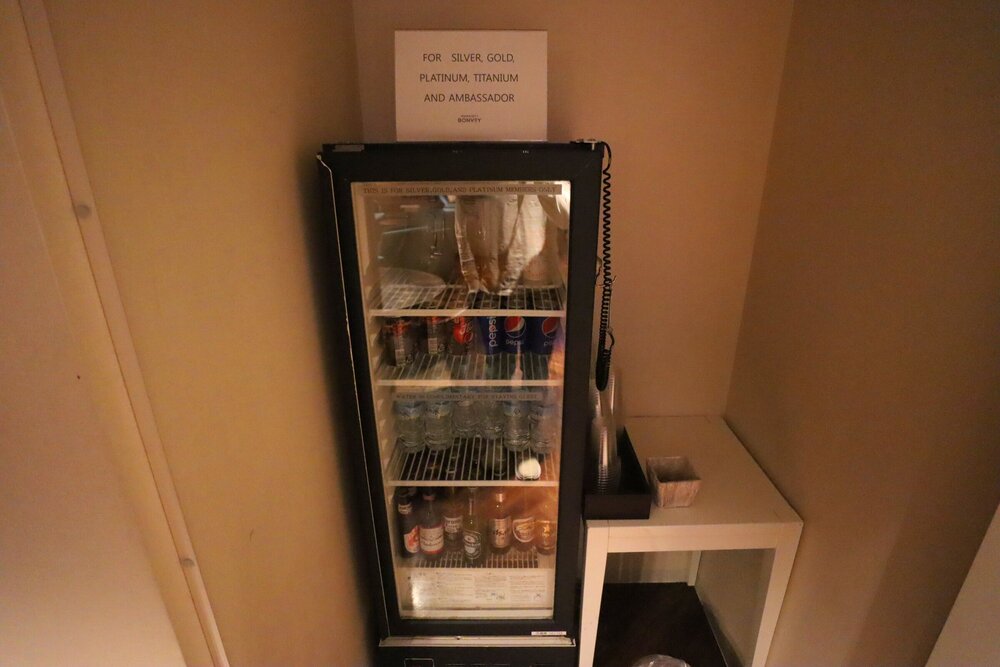
Courtyard Tokyo Station – Mini-lounge beverages
I should also note that water, coffee, and tea were complimentary for all staying guests on a 24/7 basis. Water bottles could be retrieved here at the lounge, but coffee and tea would be requested at the front desk, and the associates there would fix one up for you. It’s no St. Regis butler service, but hey, free coffee and tea around the clock is never anything to scoff at.
As you might imagine, this hotel doesn’t offer too much in the way of spa, gym, or pool facilities, with the third-floor fitness centre being just about as bare-bones of an exercise room as it gets.
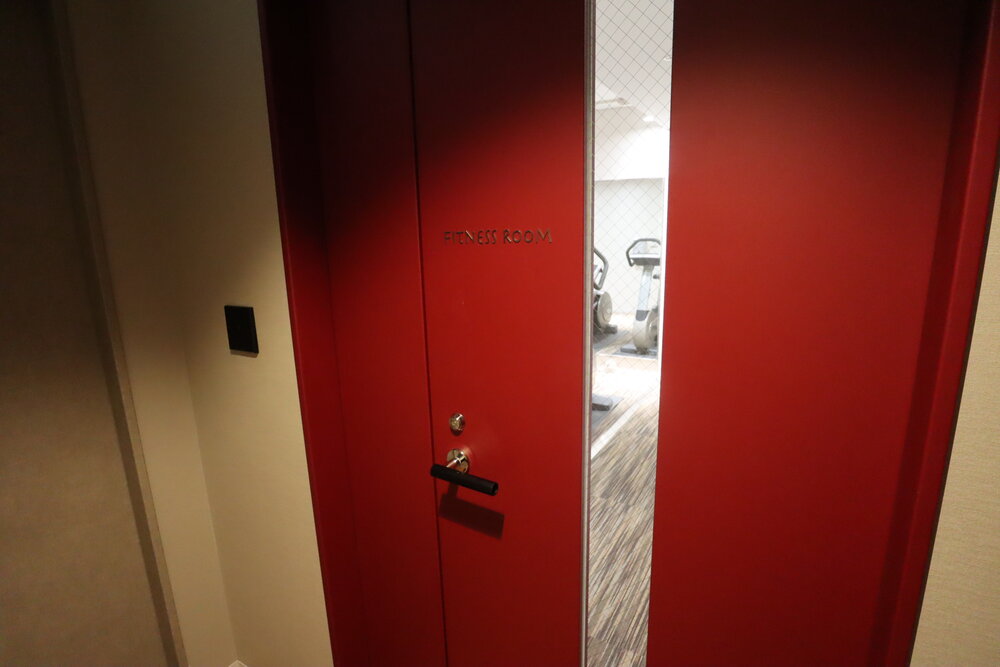
Courtyard Tokyo Station – Fitness room
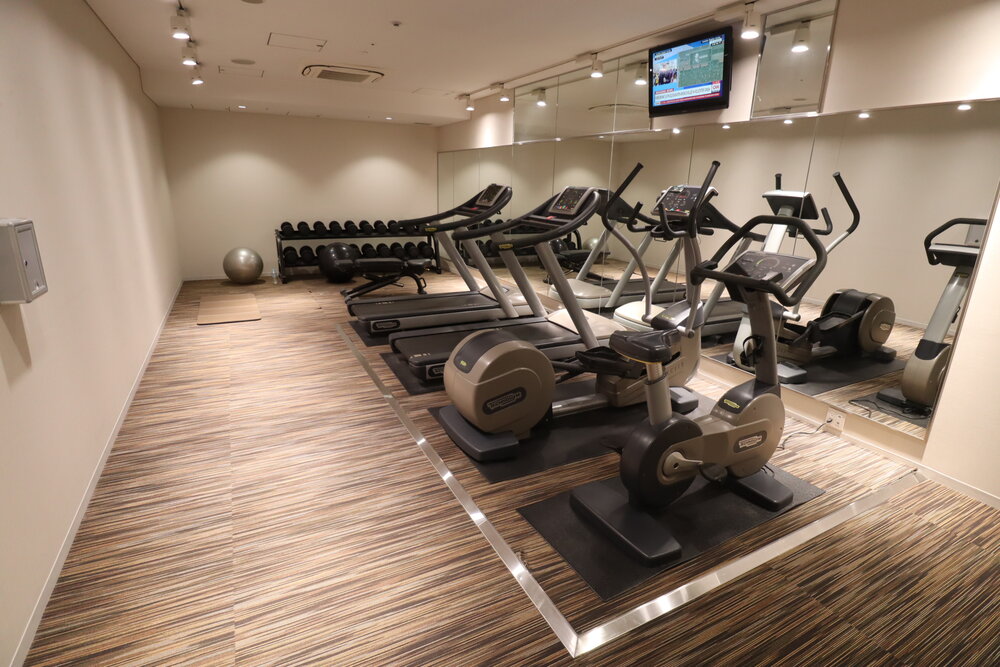
Courtyard Tokyo Station – Fitness room
Around 6pm, having enjoyed a full day in Tokyo that was as uplifting as ever, I bade farewell to the Courtyard Tokyo Station and took the Keikyu Airport train back to Haneda, gratefully picking up my passport at ANA’s lost and found office in the domestic terminal before continuing onto the international terminal for my Qsuites flight to Doha.
Conclusion
The Courtyard Tokyo Station did a fine job of meeting my needs for a short overnight stay in Japan’s capital, although everything about the hotel is definitely on the smaller side – perhaps not when compared to other budget accommodations in Tokyo, but definitely for a Western chain hotel’s standards. Solo and couple travellers might feel cozy here, but things will certainly get crowded very quickly with any larger groups.
The hotel does excel in the elite treatment with its mini-lounge for Silver Elite members and above, as well as a tasty breakfast spread that belied the hotel’s mid-market standing. Nevertheless, when you account for the cash prices at $200+ per night, the higher Category 6 designation these days, and the location in a business district that’s perhaps not ideal for tourists, I wouldn’t recommend the Courtyard Tokyo Station too highly from a value perspective.
I’d most likely choose another place to stay in the future – perhaps the Ritz-Carlton if I’m in the mood for a luxurious experience, or a return to the Prince Sakura Tower where I had an enjoyable stay in the past.




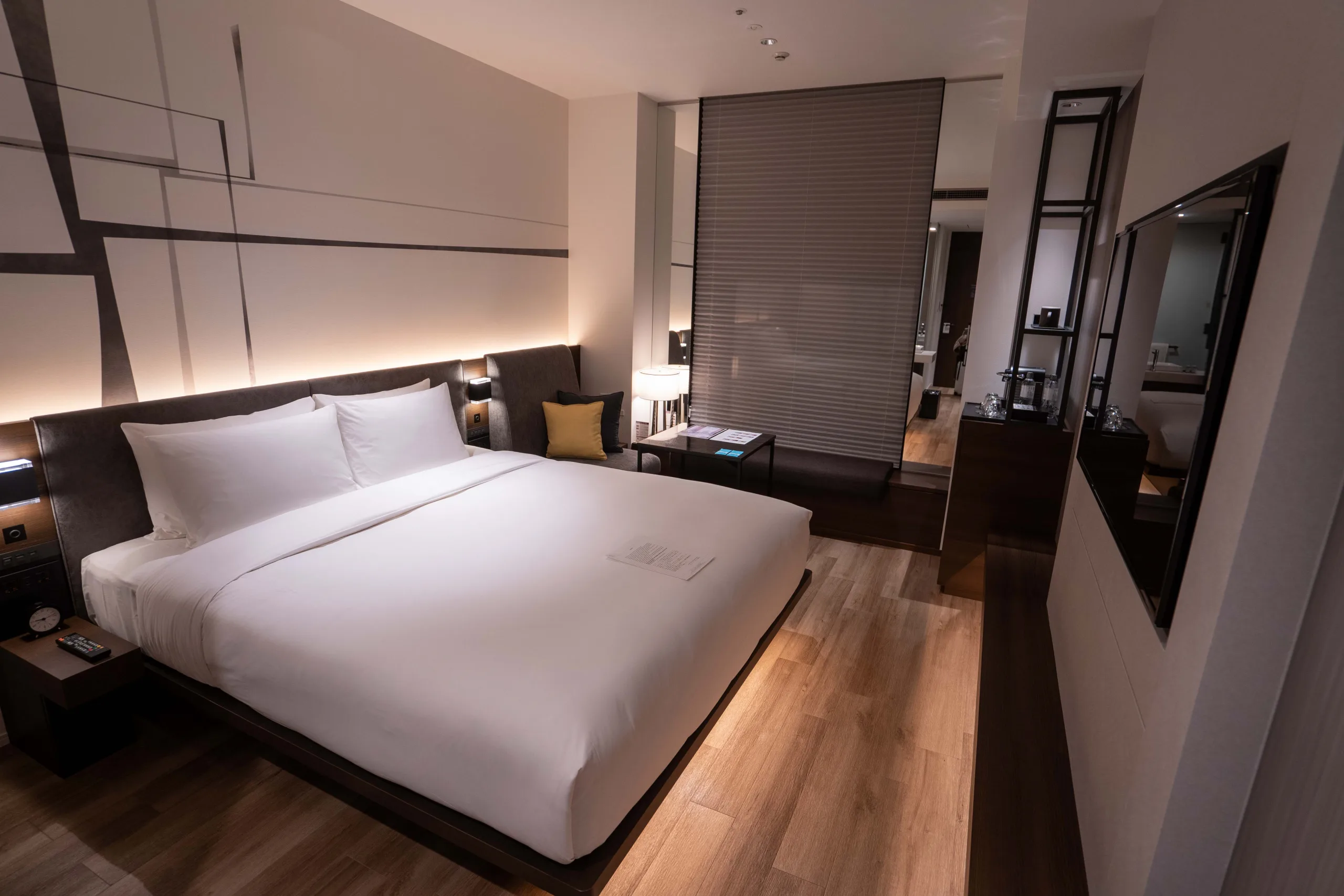
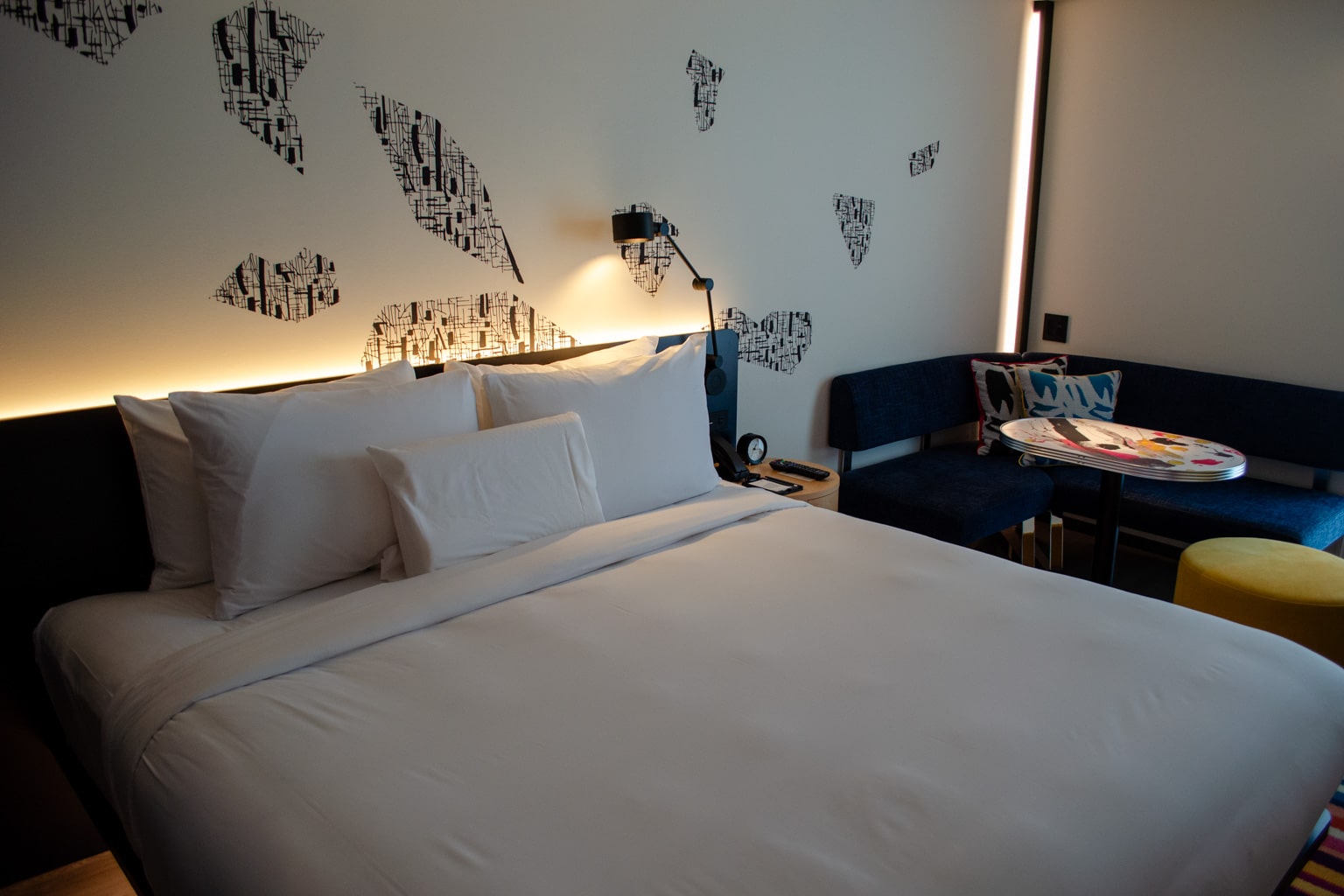
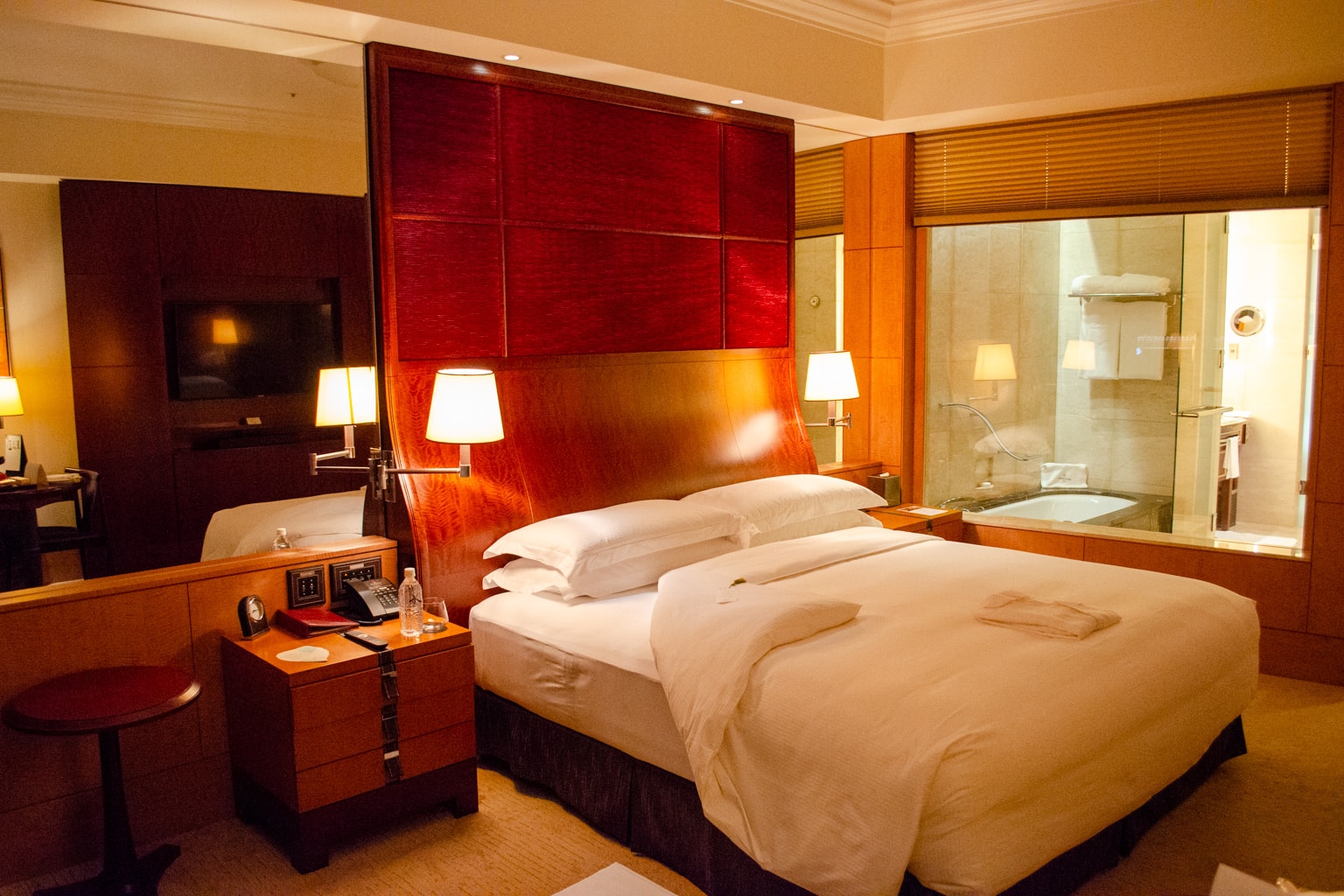
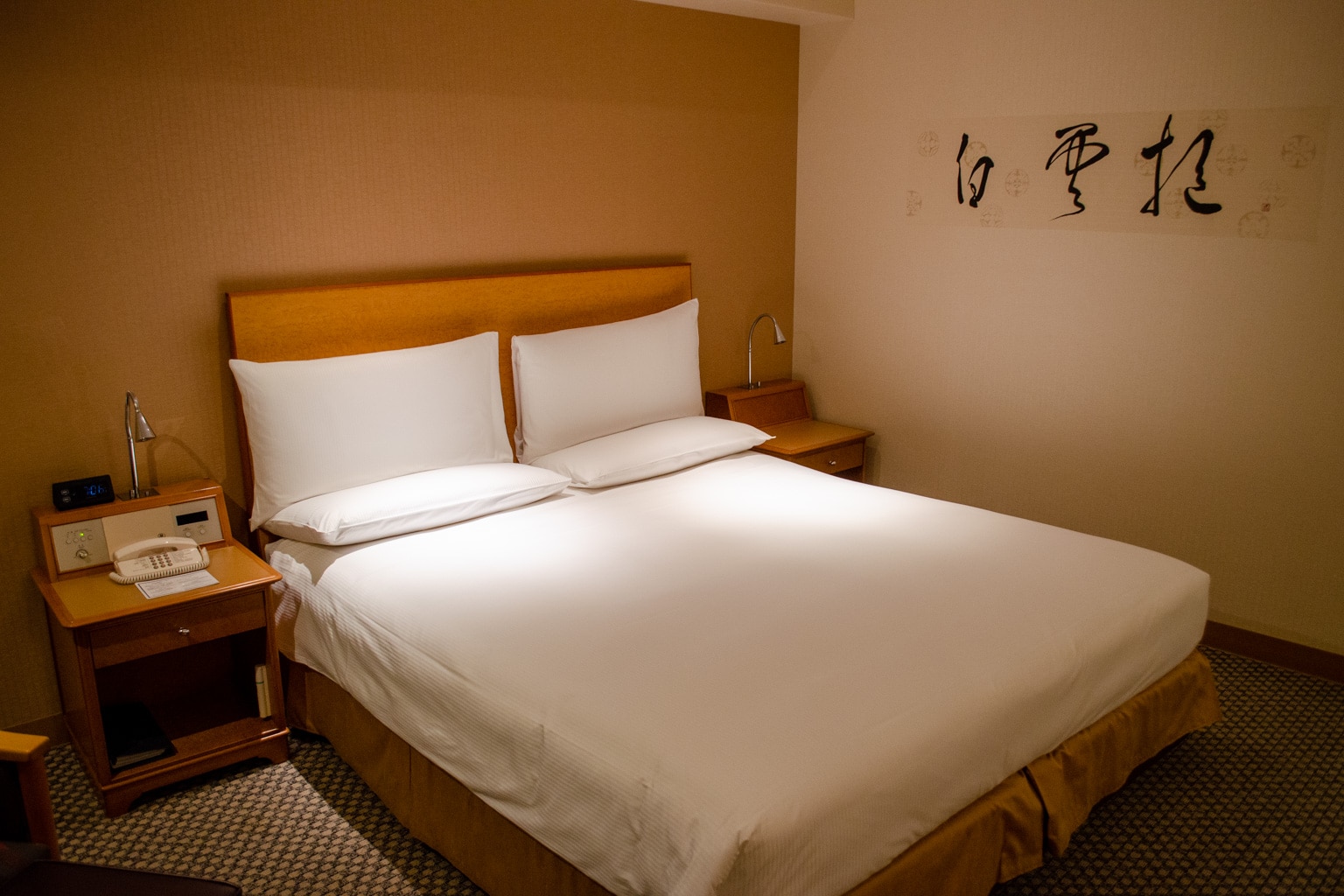
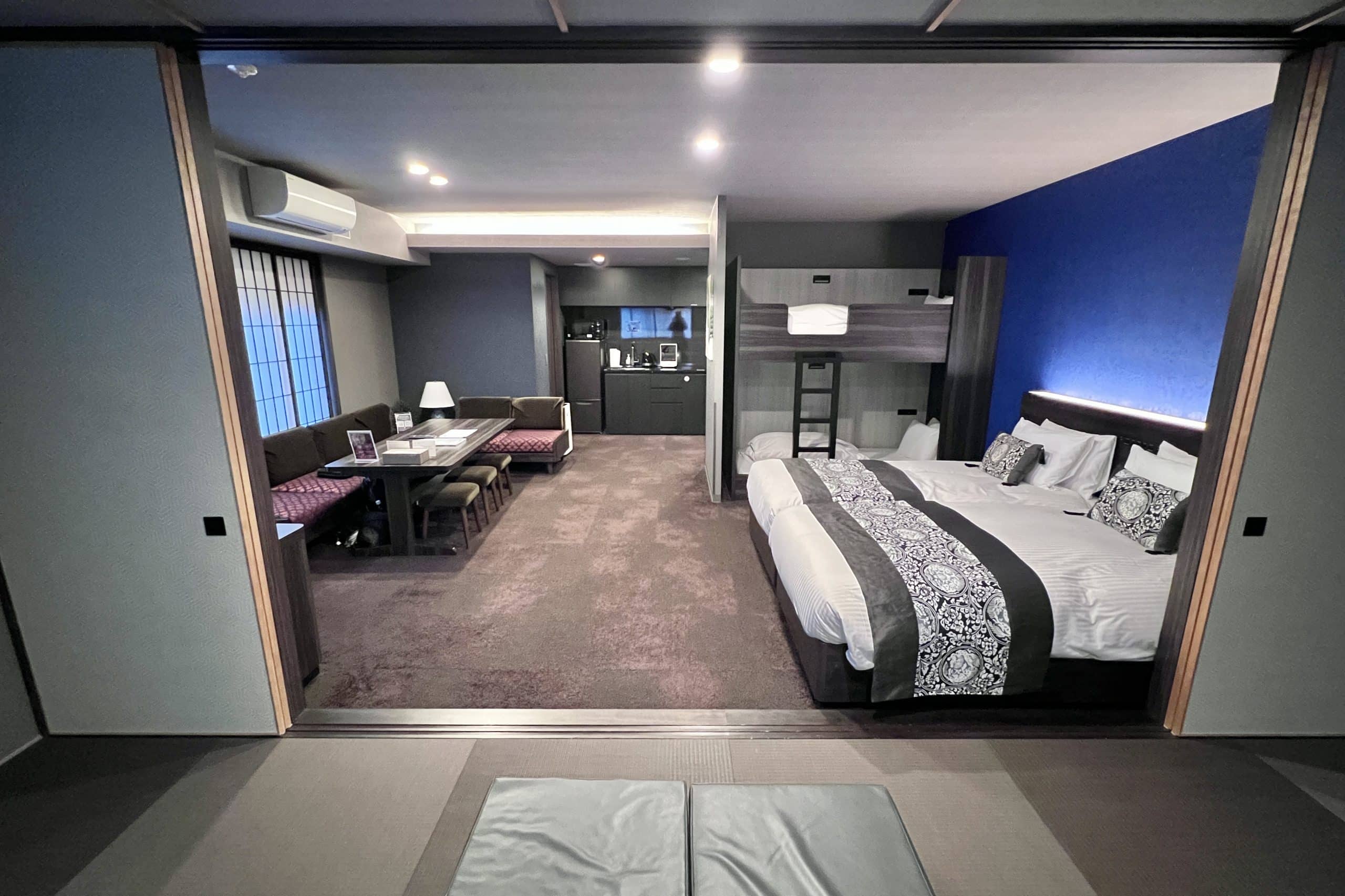
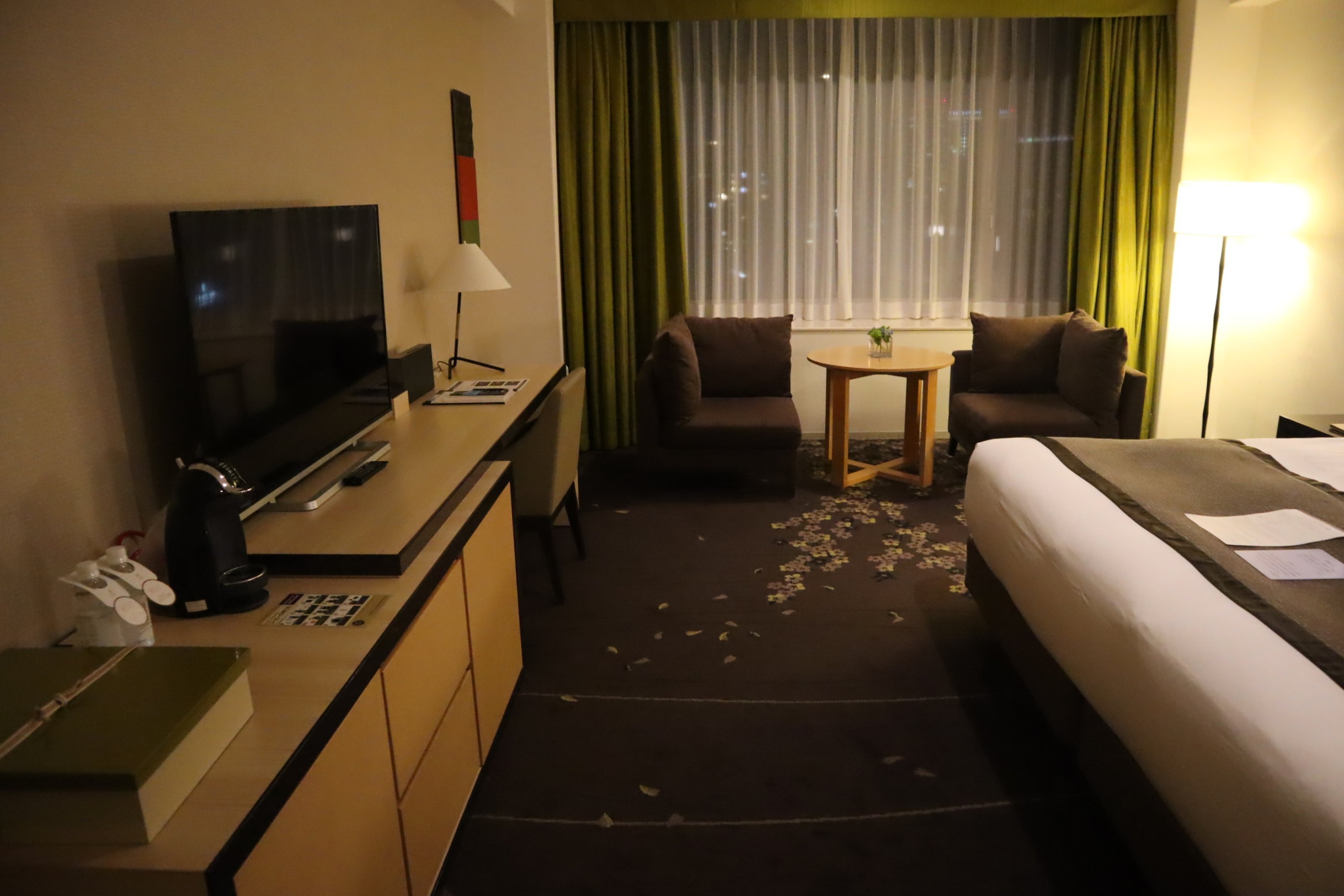
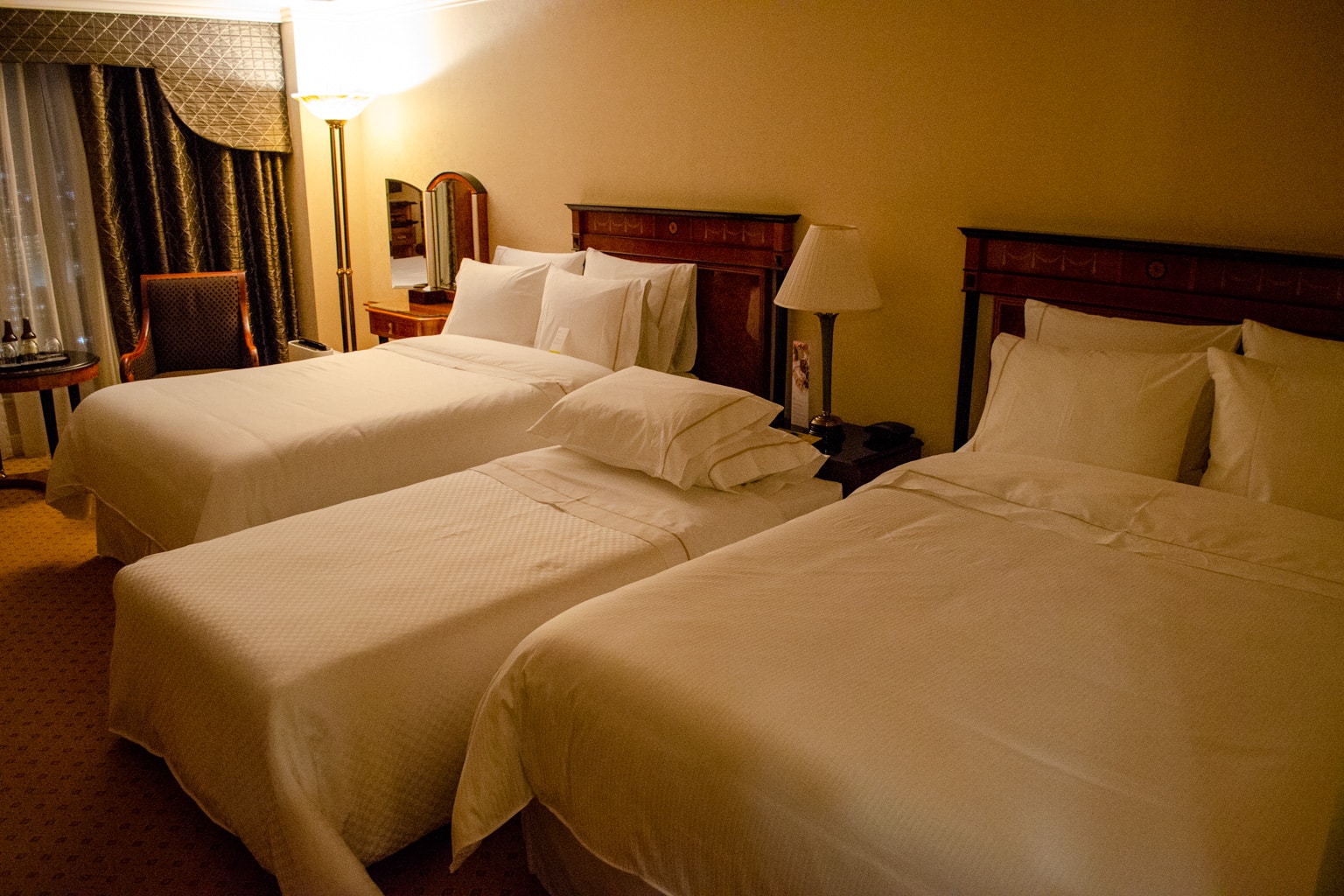
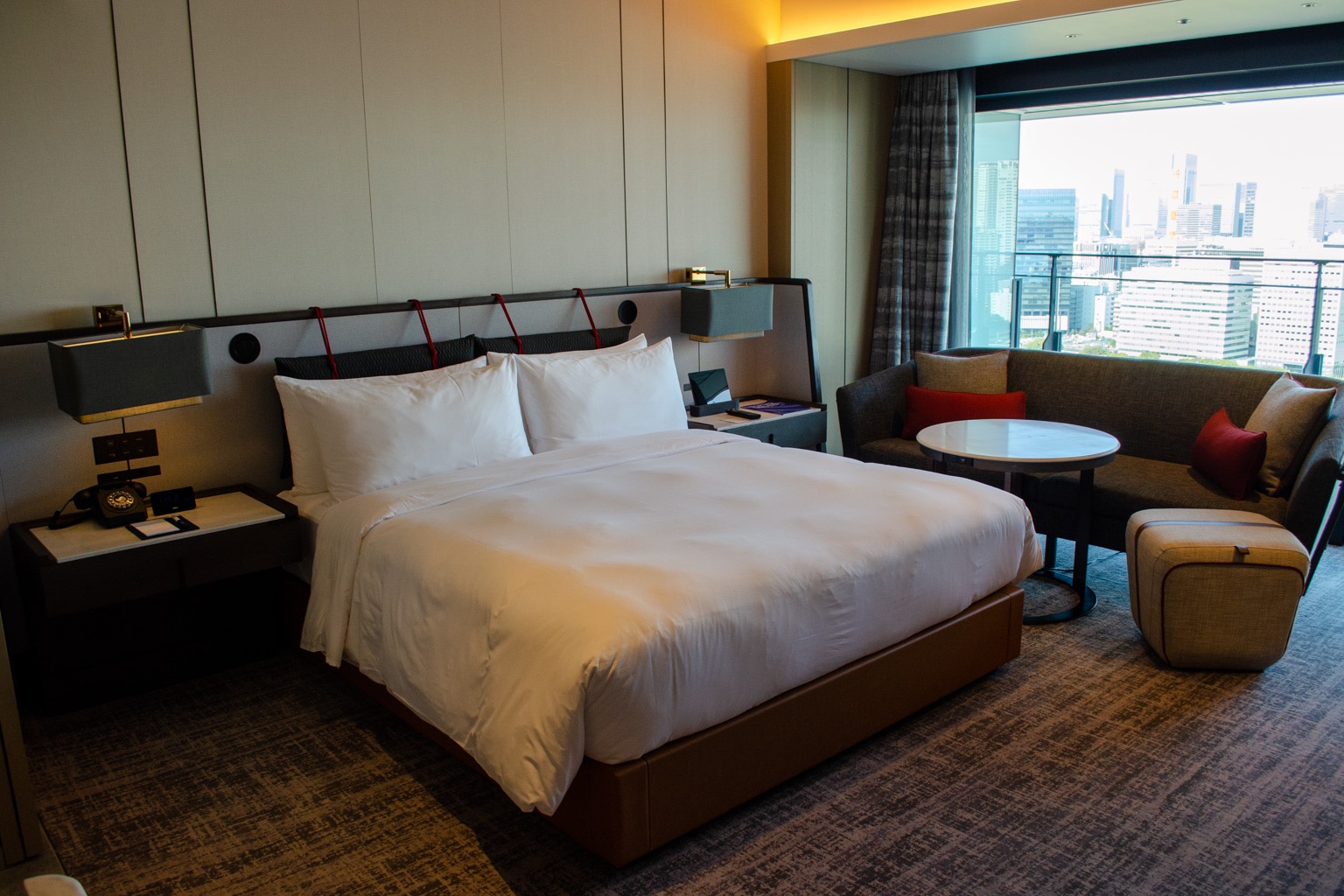
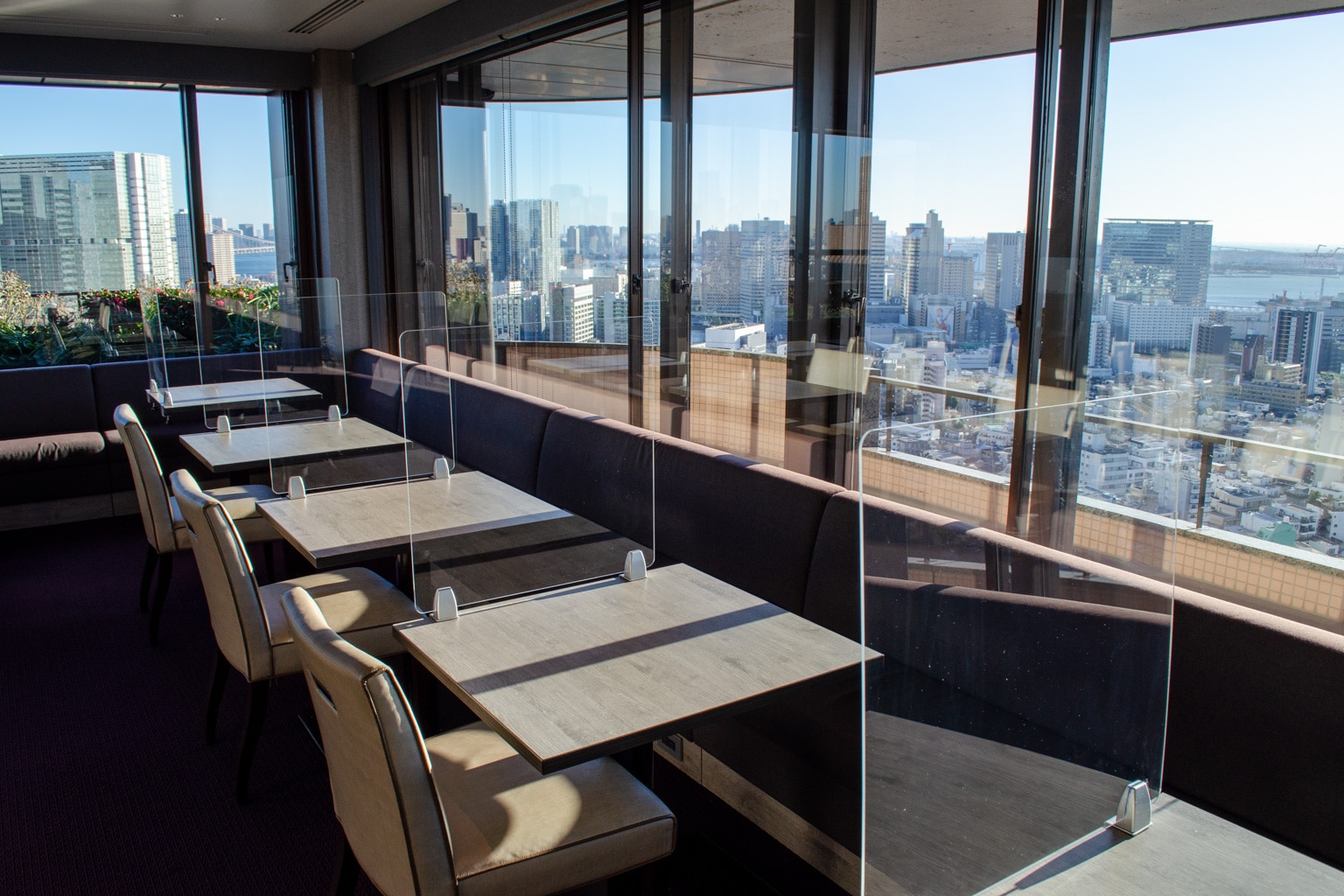
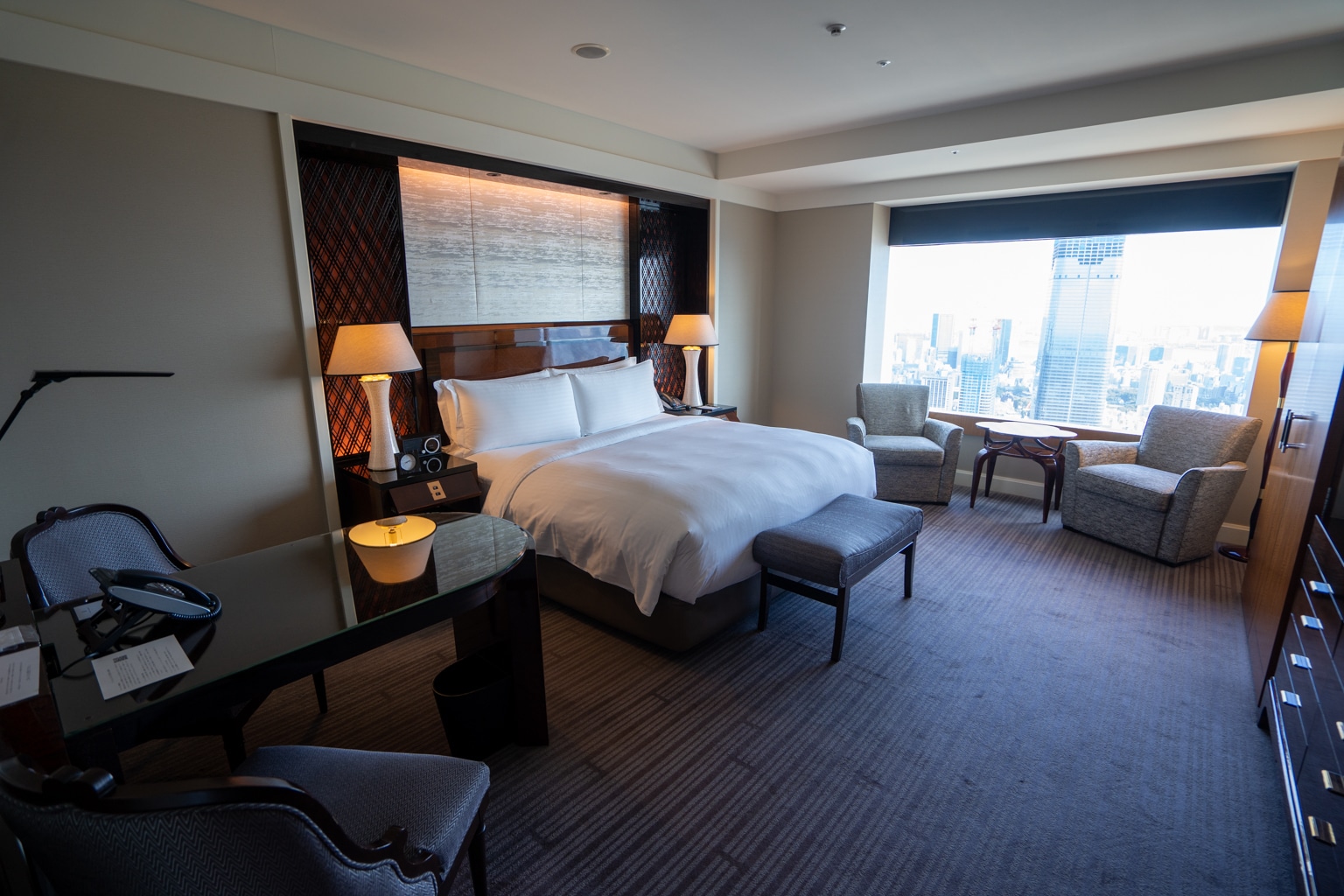
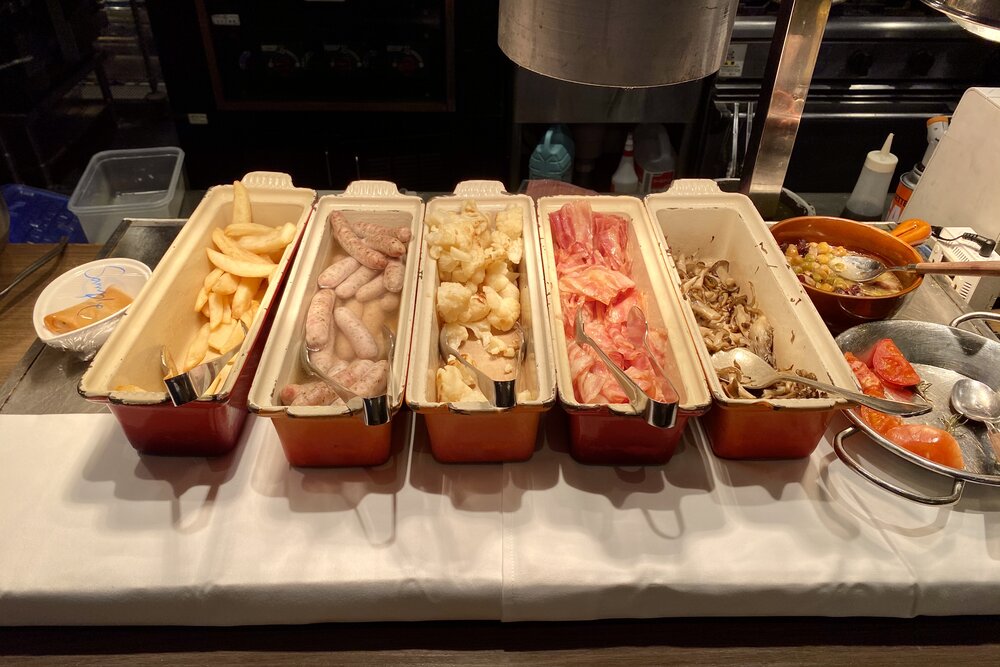
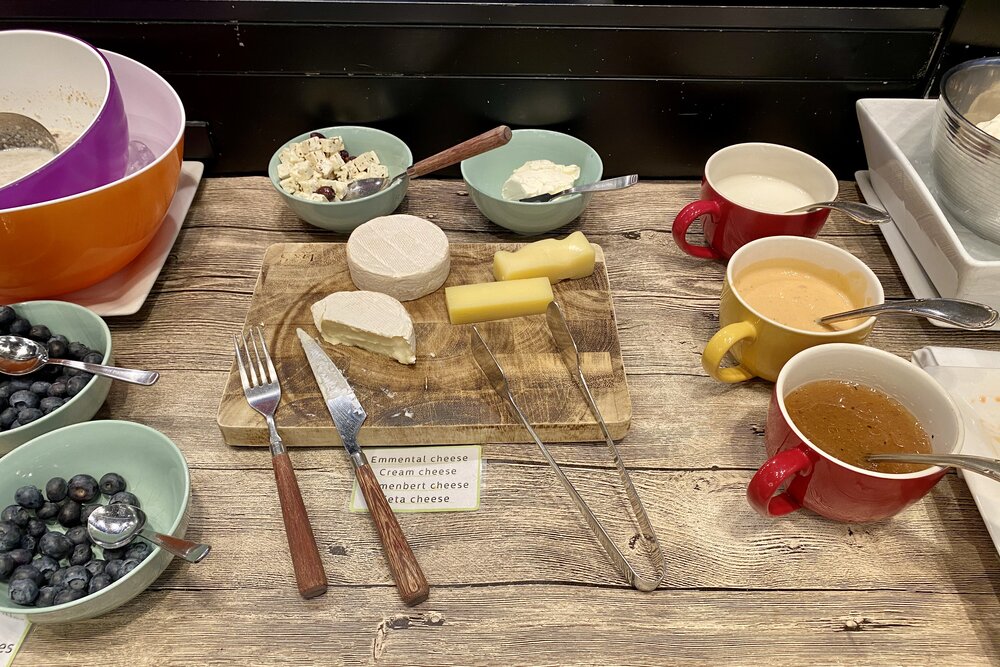
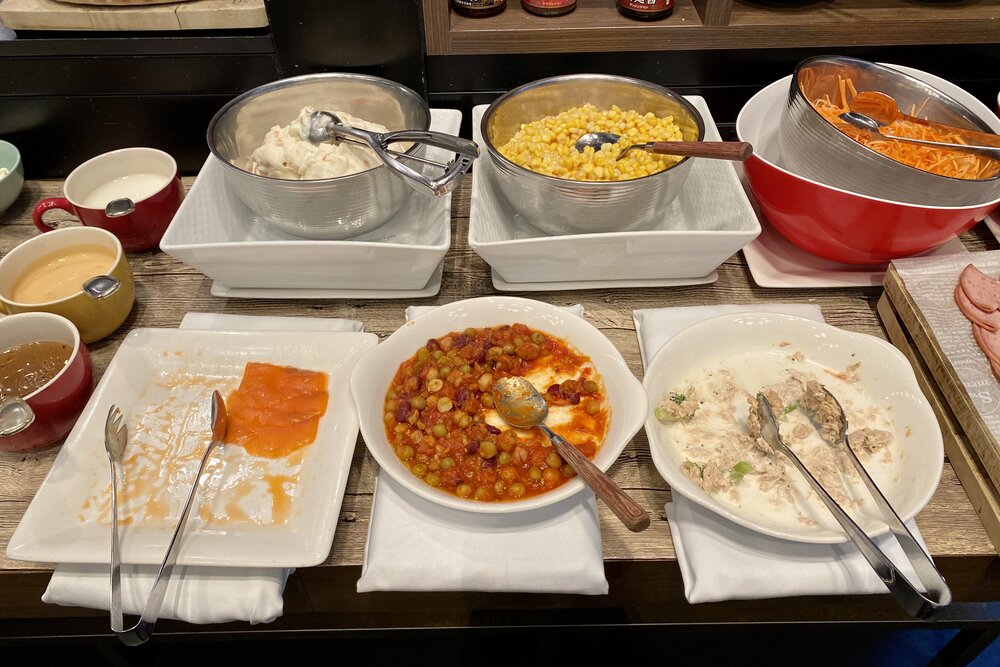
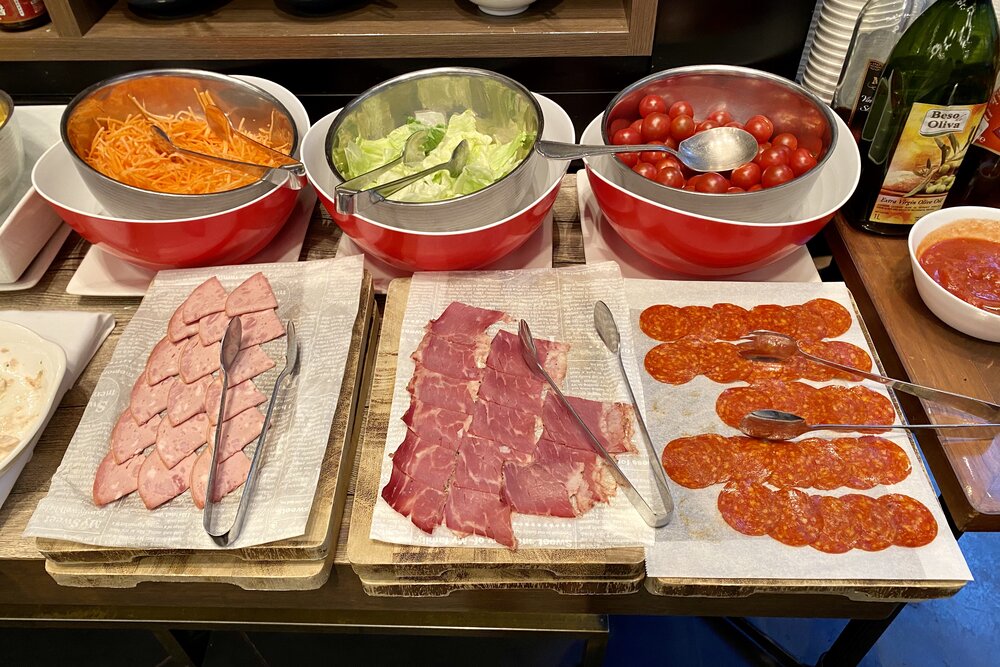
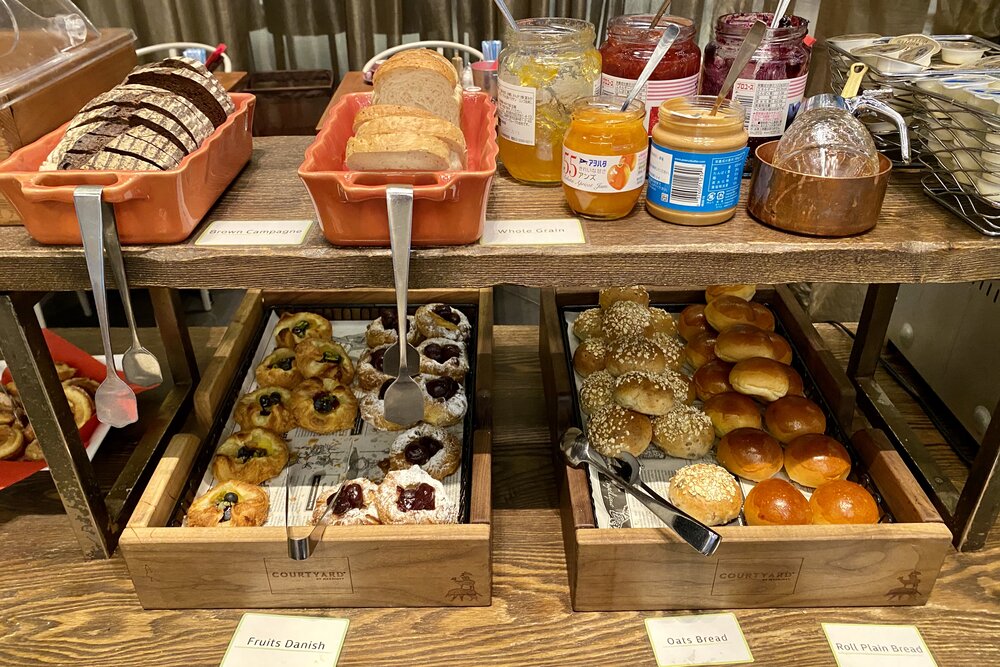
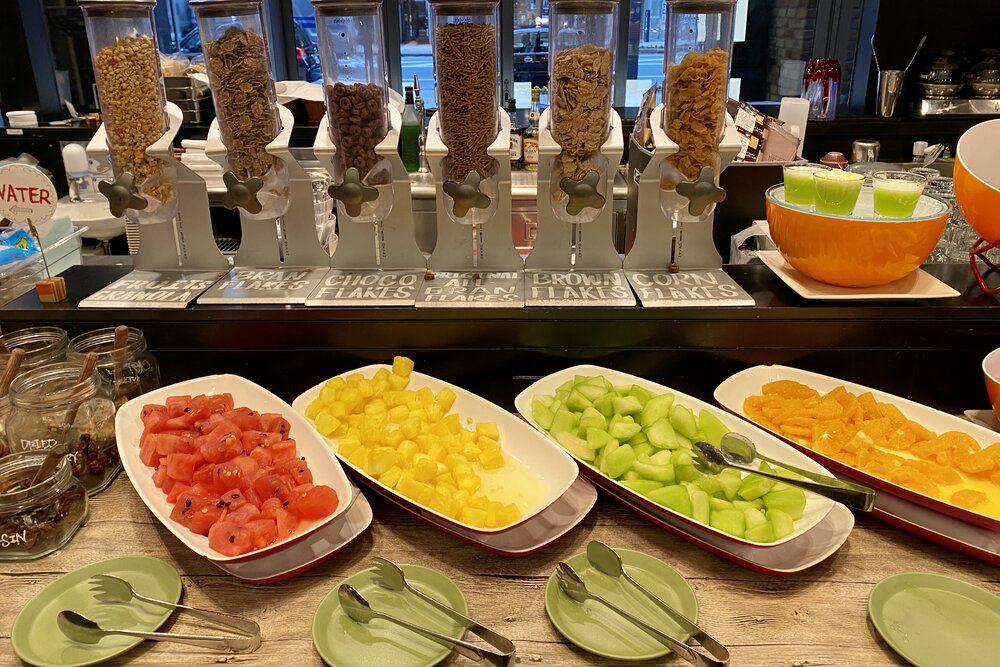
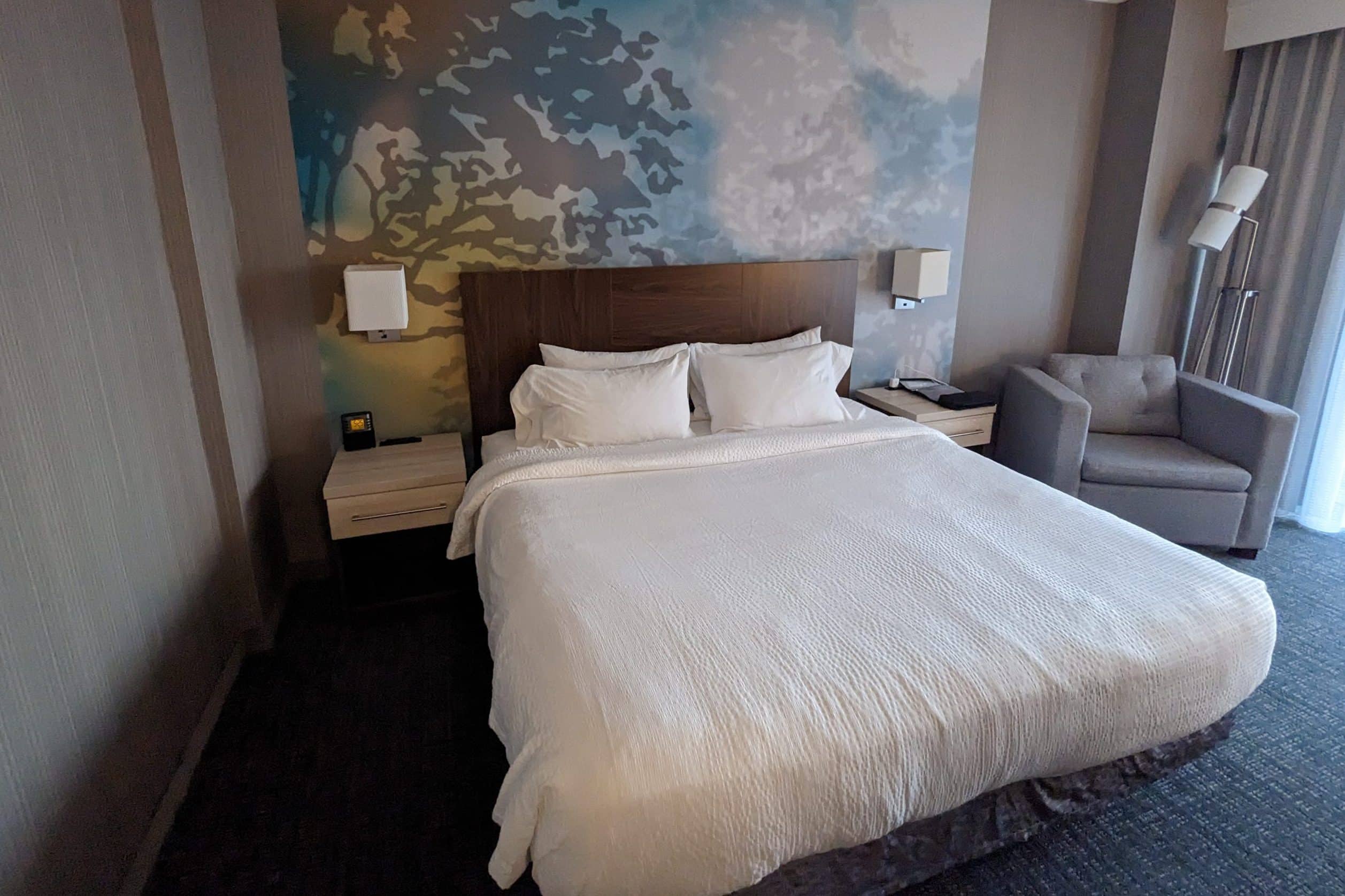
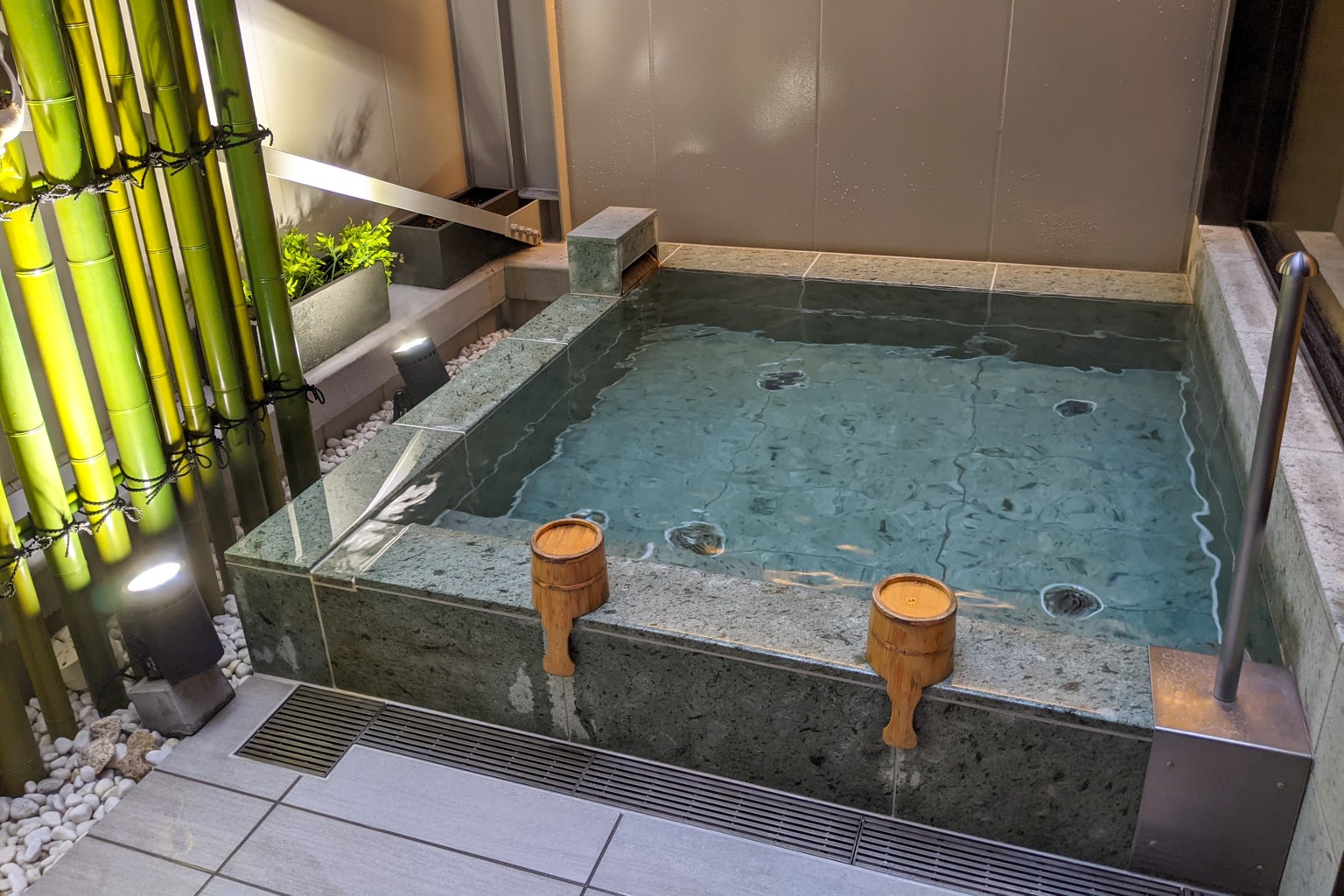
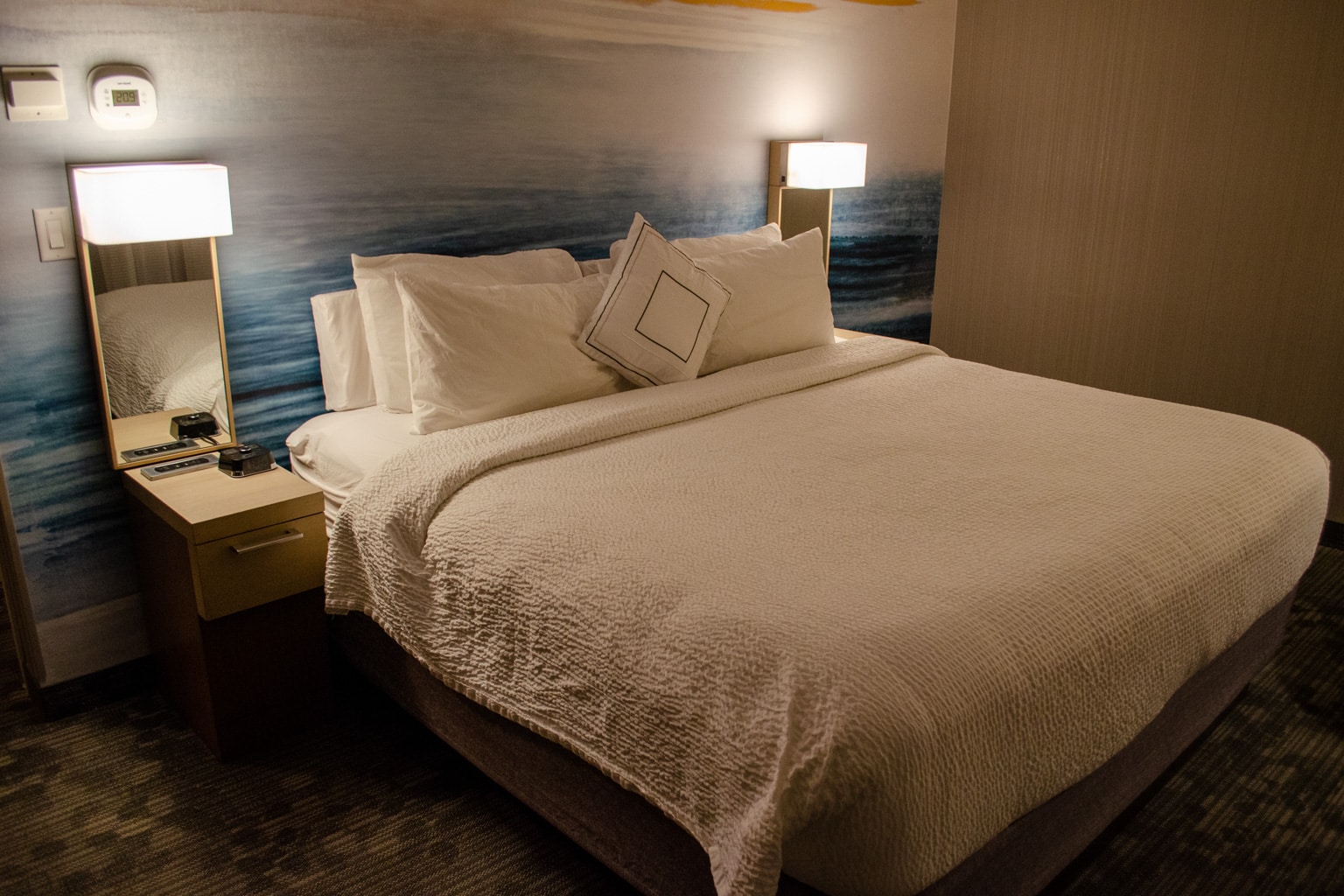
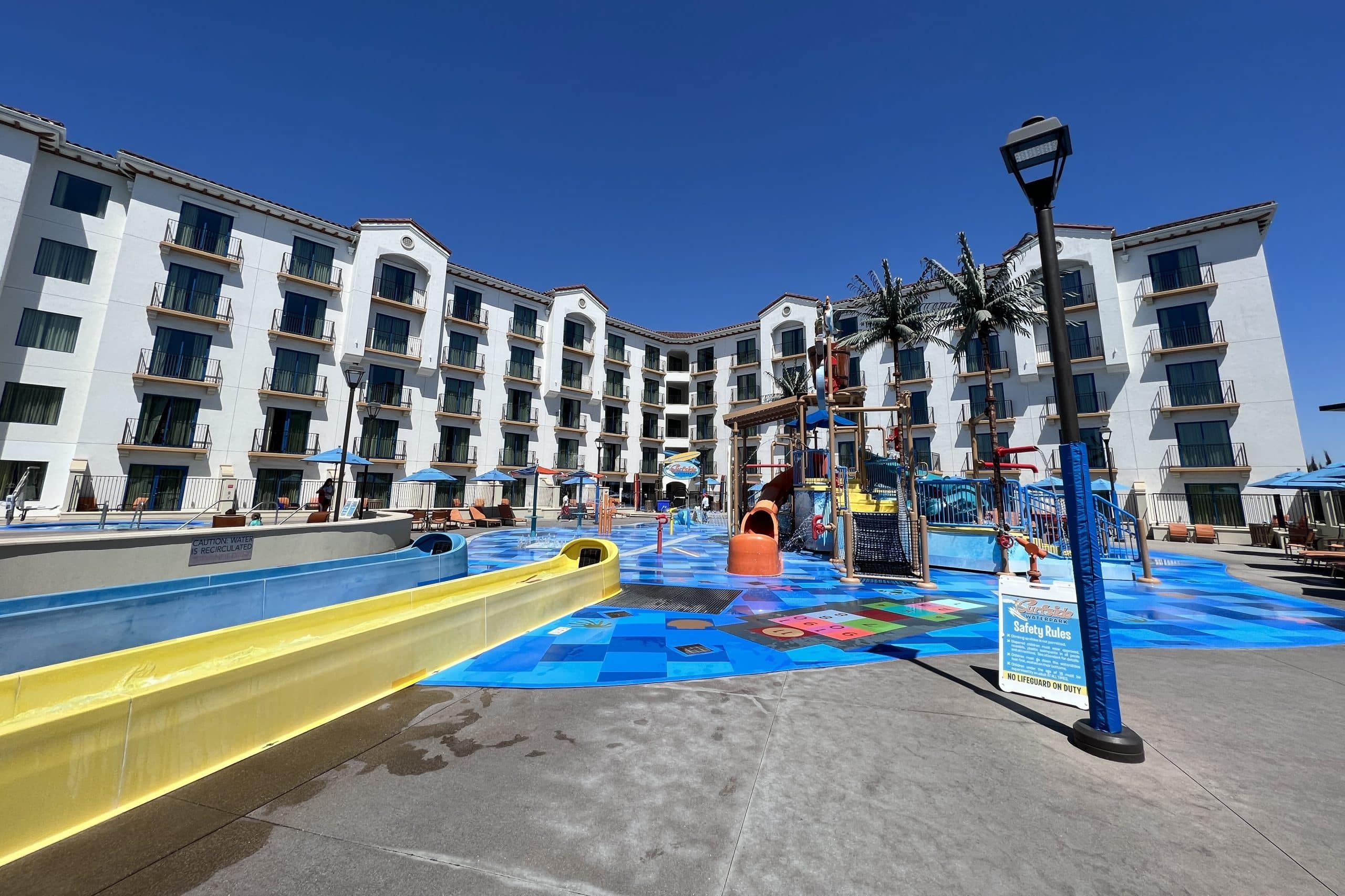
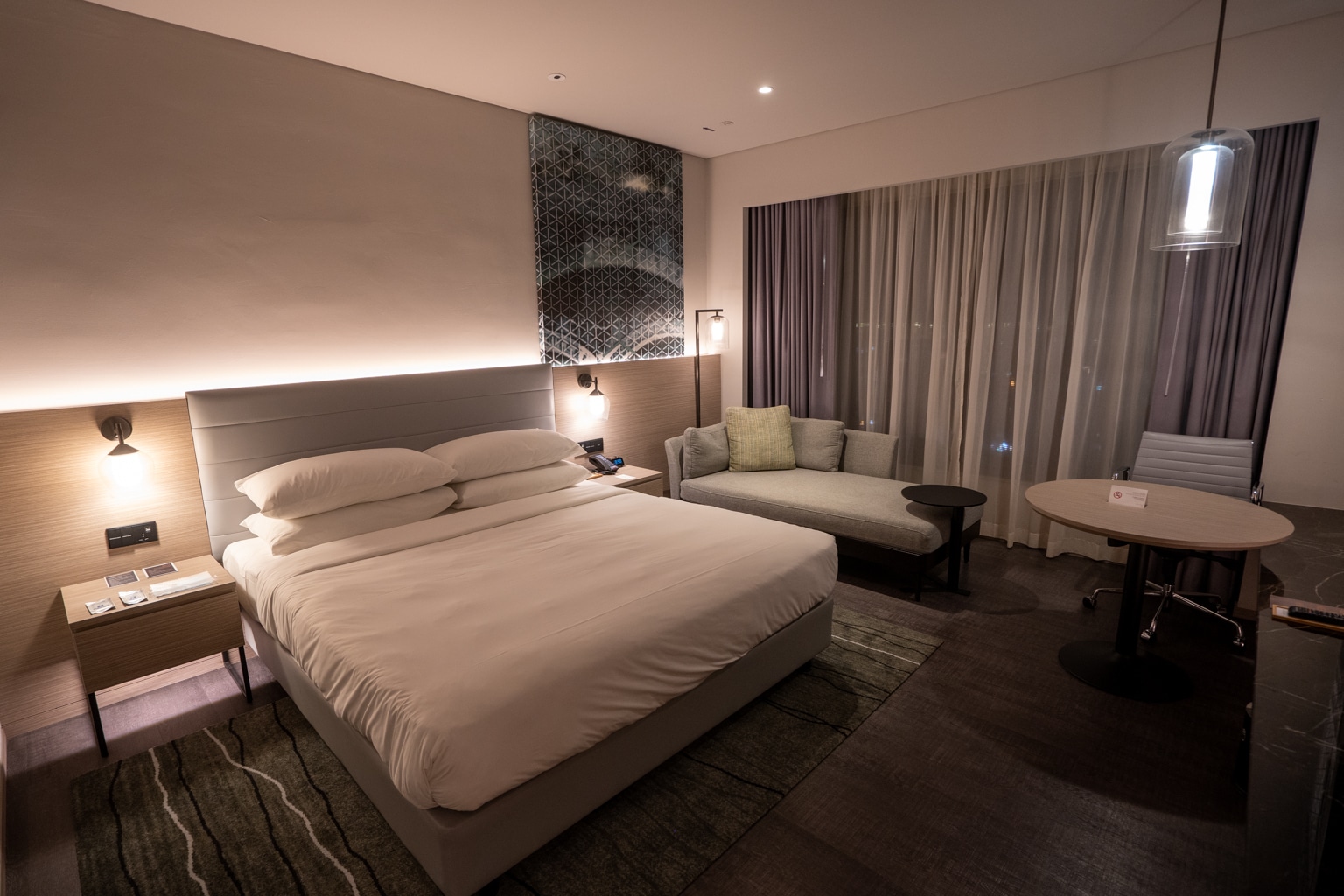
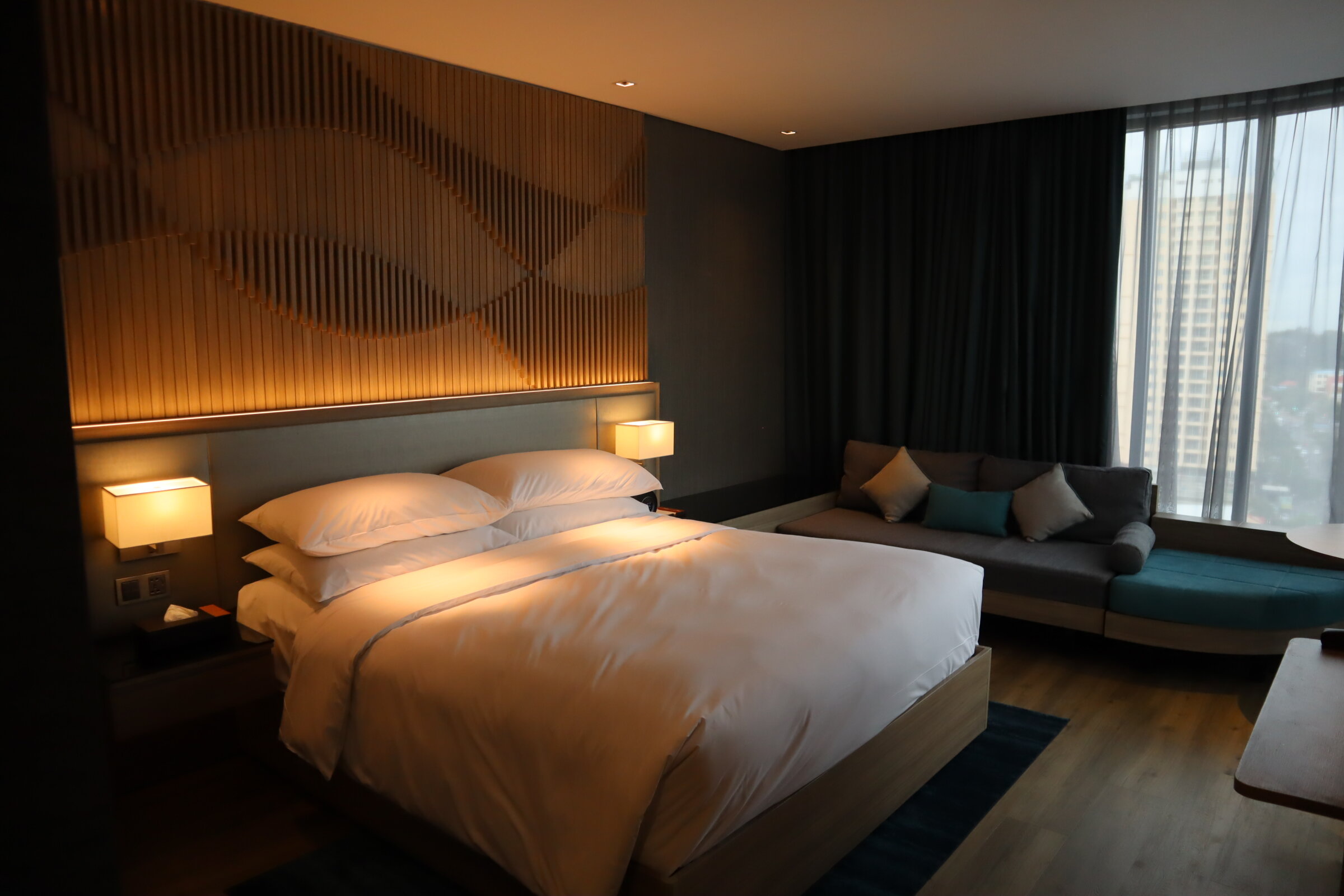









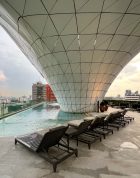
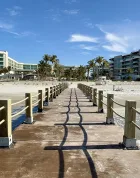


I would very highly recommend the Prince Gallery in Tokyo – exceptional and large rooms, very high-end public places, convenient public transit options, and amazing breakfast in the morning (free as a welcome gift for Marriott elites)
Thanks for the recommendation, that’s definitely one of my top choices for the next visit.
Using my iPhone ‘notes’ I keep a digitally scanned copy just in case.
Yeah I probably would’ve been able to pull up a digital copy for the hotel if they required one, but thankfully they were very gracious about the whole situation.
I’m puzzled, how did you manage to enter Japan while leaving your passport in the plane? You could’ve been ended up like the movie ‘Terminal’ for the night. When I took MU to China, one of my fellow passengers at the immigration point has realized he’s lost his passport, most likely in the plane! Not a good place to be without his passport, I don’t know what ended up happening to him.
All the customers at the cafe seem like non Asians, and all instructions at the buffet are in English only… interesting, in such a monolingual country.
Buffets…it probably won’t come back for months, if not for a couple of years.
I took a few liberties in the storytelling: the itinerary was Beijing–Osaka–Tokyo, so I had actually cleared immigration in Osaka and left the passport on a domestic flight. Thank god!
I see, you wrote you didn’t search hotels until you landed at HND, so I automatically thought you took a non stop from Beijing, as you probably had earlier opportunity to do that while connecting at KIX. JL was offering free wifi on their domestic flights a few years ago.
I think you were using mobile data while searching hotels from tarmac of HND, and I think I’ve read you’ve used it in other places (maybe ride hailing in Warsaw?) as well. How do you roam (or obtain local SIMs) when out of country?
As a frequent visitor to Japan, you probably already had enough cash on you, but how do you normally acquire foreign cash?
Have you already written about those 2 topics?
Yep, I think I just got too pre-occupied at Osaka Airport. I believe I was scrambling to upload a YouTube video 🙂
I usually use KnowRoaming for easy and convenient roaming around the world. It isn’t the cheapest option, but saves you from getting SIM cards at every turn, especially on multi-country trips: princeoftravel.com/blog/knowroaming-your-global-roaming-solution
For foreign cash, I usually use Stack + US credit cards for point-of-sale transactions. Here’s my post on foreign spending strategies: princeoftravel.com/blog/whats-my-travel-spending-strategy